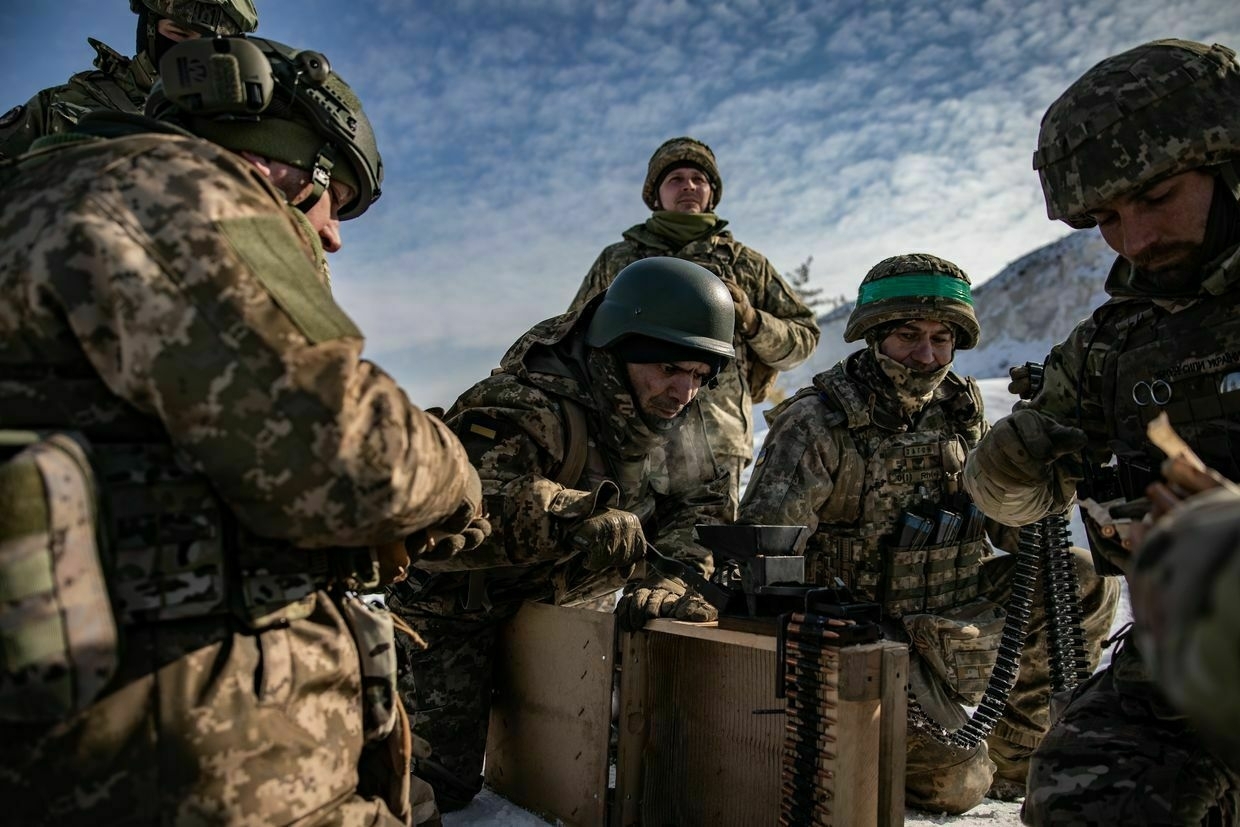-
Ukraine firm on non-negotiable red lines in peace talks with Russia
Ukraine's Foreign Minister Andriy Sybiha has assured that Ukraine will not concede on fundamental issues outlined in the country's "peace formula" during any potential peace talks with Russia. Ukraine remains resolute in its refusal to recognize occupied territories as Russian, and it will not accept any restrictions on its right to join international unions, including the European Union or NATO, nor will it allow any reduction in its military capabilities, said Sybiha in a recent interview with RBC-Ukraine.
"There are fundamental points that are non-negotiable, that cannot be touched upon," Sybiha stated when addressing the question of red lines in future negotiations. He emphasized three core issues where no compromise will be made:
Ukraine's territorial integrity and sovereignty—Ukraine will never recognize the occupied territories as Russian.
The choice of the Ukrainian people regarding participation in international unions such as the EU or NATO cannot be vetoed by any other country.
Ukraine's defense capabilities, the strength of its army, and its military potential cannot, in any way, be restricted.
"Russia must be held accountable. These are essential elements of a comprehensive peace. And let me remind you, they were included in our 'peace formula,' reflecting the approaches that define our international stance," the foreign minister noted. According to Sybiha, Ukraine's principled positions— "nothing about Ukraine without Ukraine" and "nothing about Europe without Europe"— receive strong support among allies.
On March 17, CNN reported that former U.S. President Donald Trump announced a conversation with Russian President Vladimir Putin scheduled for March 18, stating that certain issues, including territories and power stations, and "the distribution of certain assets," had reportedly been discussed by both sides.
On March 16, The Independent, citing senior Ukrainian sources, reported that Ukraine has set red lines for any potential peace agreement with Russia. Insiders asserted that Ukraine will not cede any additional territories, will demand the return of abducted children and civilians unlawfully detained by Russia, and will seek international security guarantees.
-
Russian negotiator says he expects talks with Musk on space, tech
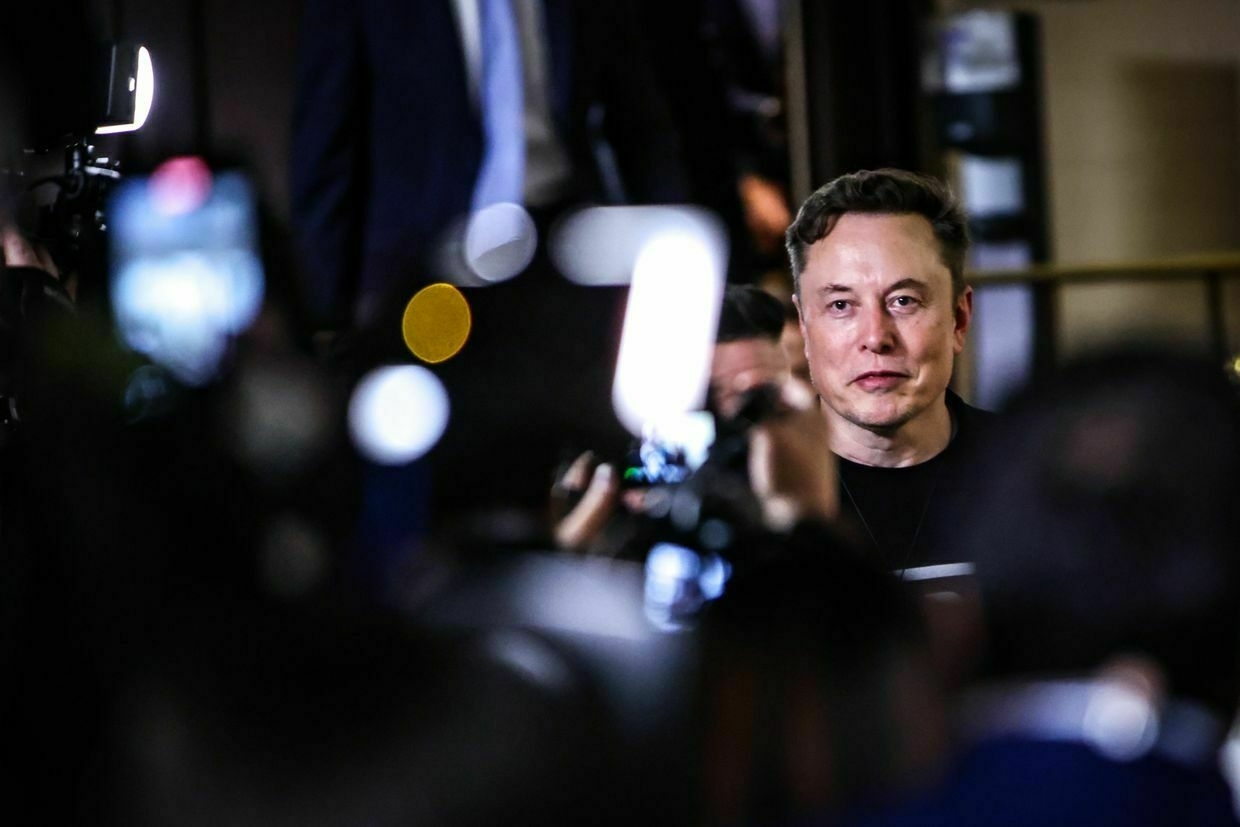
Kirill Dmitriev, the CEO of the Russian Direct Investment Fund (RDIF), said he expects Russia to hold talks with U.S. billionaire and President Donald Trump’s ally, Elon Musk, in the near future, the pro-state news agency RBK reported on March 18.
The comments come amid warming ties between the U.S. and Russia as the Trump administration signaled intent to renew bilateral relations and boost economic cooperation.
Dmitriev, one of Russia’s negotiators during talks with the U.S. in Saudi Arabia, said that the possible meeting with Musk would concern technological development and the “future of humanity."
“I think that there will undoubtedly be a discussion with Musk (about Mars flights) in the near future,” the Russian official said at a business forum, according to Reuters.
Musk is the founder and CEO of the SpaceX space technology company. The billionaire recently announced plans to have his Starship spacecraft depart for Mars by the end of 2026.
According to Dmitriev, Russia also seeks cooperation with Musk and SpaceX to help develop Russia’s space agency Roscosmos and state-run nuclear energy company Rosatom.
Musk has yet to comment on the potential meeting.
Dmitriev’s comments come as Trump is set to call Russian President Vladimir Putin to discuss a proposed ceasefire in Ukraine, seen as a step toward a broader peace agreement.
Critical Ukraine coverage at risk as Trump slashes Radio Free Europe fundingThe U.S. decision to cut off funding for Radio Free Europe/Radio Liberty came as a surprise for the outlet’s newsroom, a source in the RFE/RL’s Ukrainian Service told the Kyiv Independent. “We understood that the U.S. president, to put it mildly, does not like us,The Kyiv IndependentKateryna Denisova
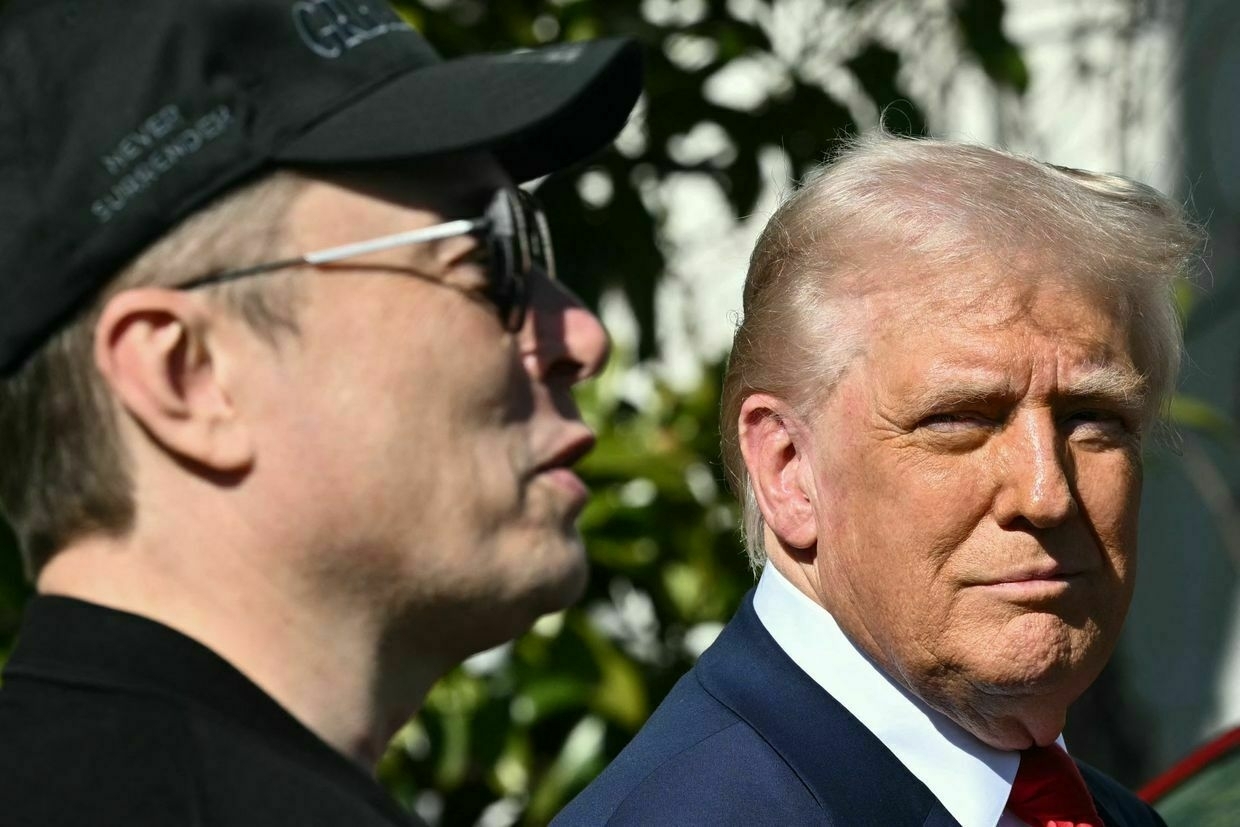
-
UK reportedly hopes US drones, satellites will help monitor Ukraine ceasefire
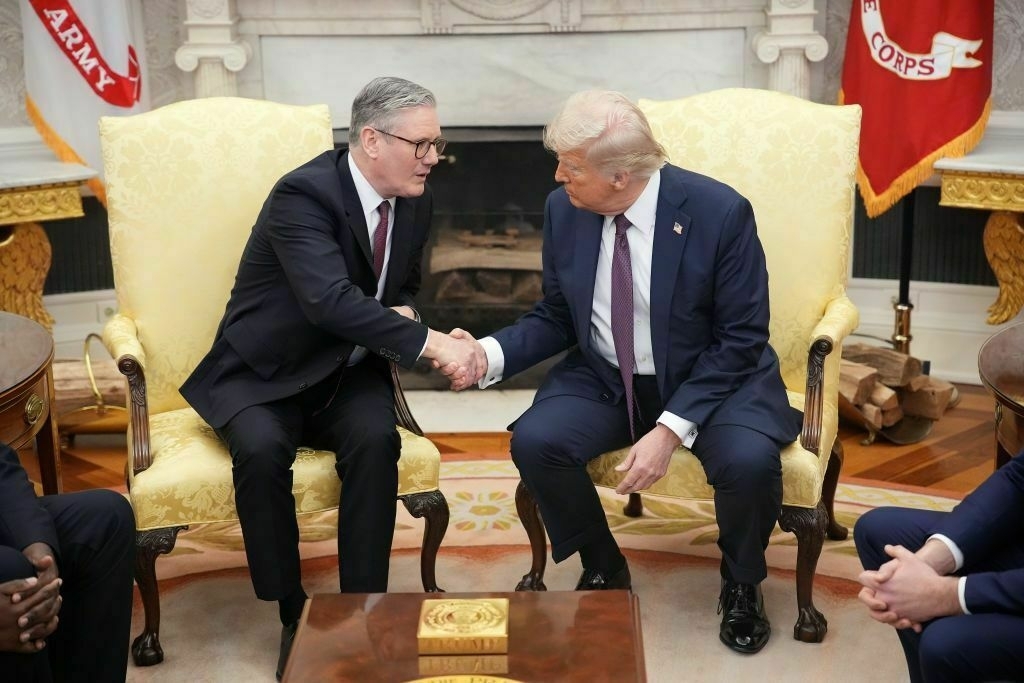
The U.K. hopes that the U.S. will provide drones and satellite surveillance to monitor the border zone between Ukraine and Russia if a ceasefire agreement is reached, the Times reported on March 18, citing unnamed British diplomats.
The U.S. military has 247 military satellites and thousands of commercial satellites, providing an “unrivaled picture” of eastern Ukraine that European forces would struggle to replicate, the Times wrote.
Satellites with high-resolution imaging and thermal sensors could track troop movements, detect artillery fire, and monitor border areas for ceasefire violations.
According to the Times, U.S. drones and satellites could enforce a possible buffer zone on either side of the front line to prevent hostilities from resuming.
U.K. Prime Minister Keir Starmer has previously appealed to U.S. President Donald Trump to provide a “backstop” to a European-led plan to deploy at least 10,000 peacekeepers to Ukraine.
Washington has so far refused to make any clear commitments to Ukraine’s security, instead urging Europe to take responsibility for Kyiv’s post-war stability. Starmer will host military leaders of the “coalition of the willing” in London on March 20 to discuss the peacekeeping mission.
The discussions follow U.S.-led negotiations in Saudi Arabia, where Washington proposed a 30-day ceasefire between Russia and Ukraine. Kyiv accepted the deal during bilateral talks in Jeddah on March 11, prompting the U.S. to resume military and intelligence support for Ukraine.
On March 13, Russian President Vladimir Putin said Moscow was also open to a ceasefire but demanded guarantees that Ukraine would halt mobilization, military training, and foreign aid deliveries during the truce.
Such conditions could leave Kyiv vulnerable to future Russian offensives.
Trump is set to hold a phone call with Putin on March 18 to discuss the proposed truce.
Trump boasts of saving ‘surrounded’ Ukrainian soldiers despite Kyiv denying encirclement in Kursk OblastU.S. President Donald Trump claimed on March 17 that he took an unspecified action to save “surrounded” Ukrainian soldiers, apparently referring to his earlier and unsubstantiated claims of Kyiv’s troops being encircled in Russia’s Kursk Oblast.The Kyiv IndependentMartin Fornusek
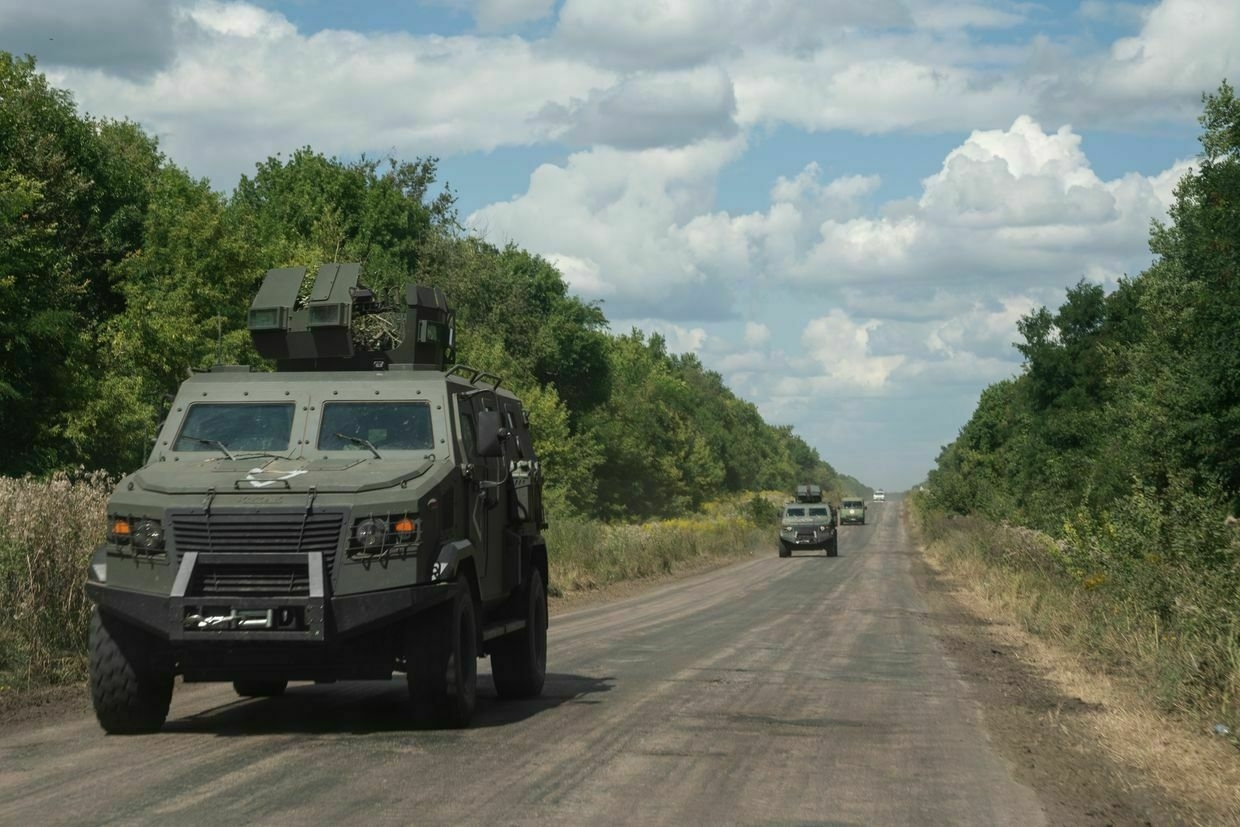
-
Russia sees US aid halt during Ukraine truce as its 'minimum' goal, Bloomberg reports
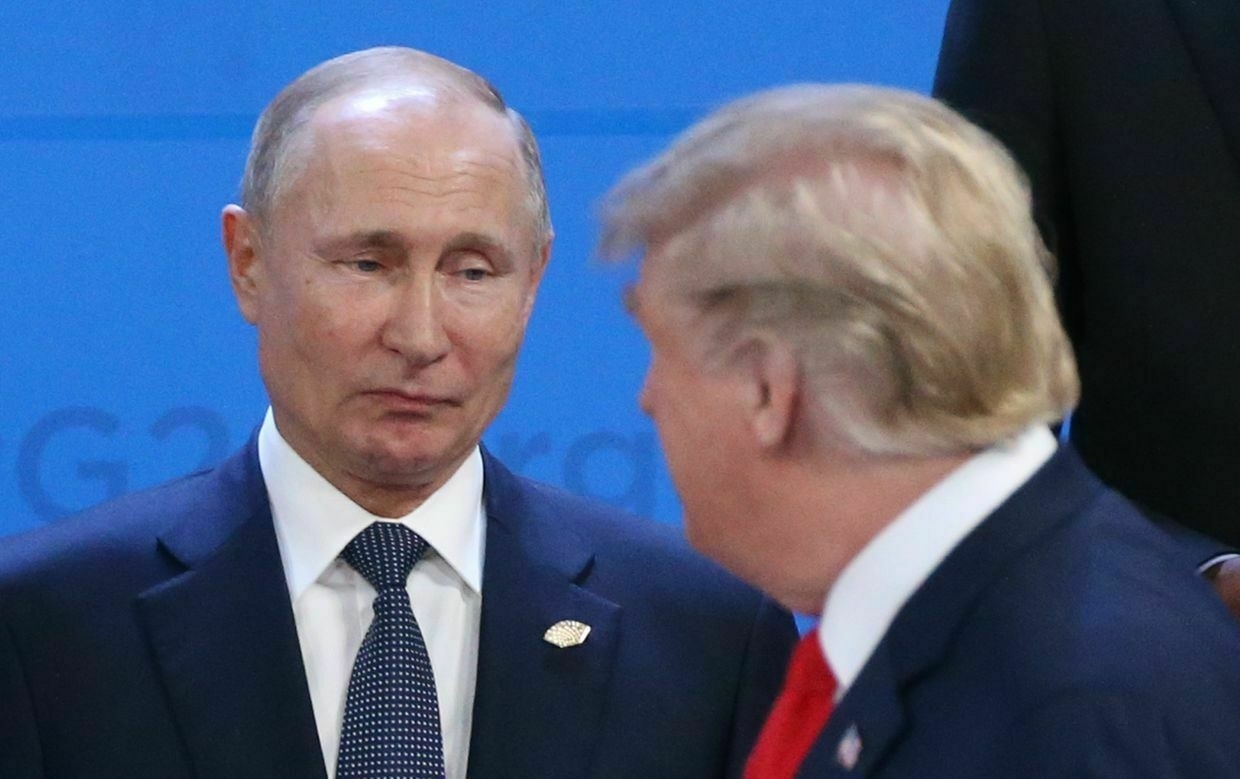
The Kremlin wants all Western arms supplies to Ukraine to stop during a proposed truce but prioritizes a pause on U.S. arms as its “minimum aim,” Bloomberg reported on March 18, citing two undisclosed sources in Moscow.
Russian President Vladimir Putin said on March 13 that Moscow is open to a 30-day ceasefire, agreed upon by the U.S. and Ukraine, but only if Kyiv stops receiving foreign arms and conscripting and training its forces.
These conditions have raised concerns that Ukraine would be left vulnerable to renewed Russian offensives as no such limitations are being proposed in regard to Russia’s Armed Forces.
Bloomberg’s sources confirmed that the halt on Western arms supplies — or at the very least, U.S. assistance — remains as Putin’s condition.
Putin is scheduled to call with U.S. President Donald Trump later on March 18 between 4 and 6 p.m. Moscow time, Kremlin spokesperson Dmitry Peskov confirmed. The two leaders are expected to discuss the proposed ceasefire plan.
The U.S. temporarily halted military supplies for Ukraine earlier this month before restarting it after Kyiv agreed to the truce plan during talks in Jeddah on March 11.
The ongoing supplies are covered by the presidential drawdown authority (PDA) packages approved by former President Joe Biden, who made the U.S. into Ukraine’s leading military donor.
Trump has not approved any new packages and has made it clear he does not seek a prolonged U.S. engagement in Ukraine.
The EU reportedly has no intention of halting military aid to Ukraine during the proposed truce. European countries are seeking ways to bolster support for Kyiv as continued backing from the U.S. grows increasingly uncertain.
Who is to gain more from a ceasefire — Russia or Ukraine?U.S. President Donald Trump said on March 17 that he expects to hold a phone call with his Russian counterpart Vladimir Putin to discuss a U.S.-backed ceasefire proposal that Moscow has yet to agree to. Russia has declined to immediately accept the 30-day ceasefire proposal, with theThe Kyiv IndependentOleg Sukhov
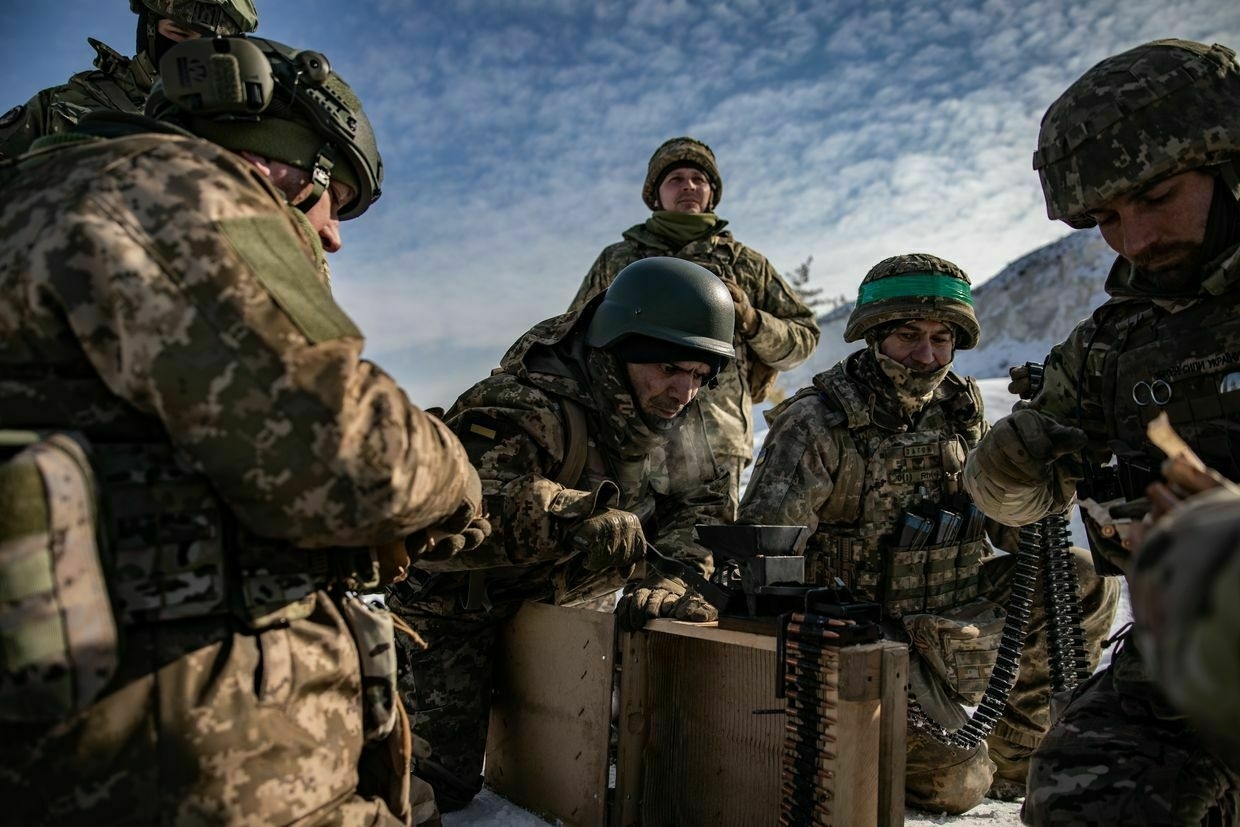
-
Ukraine withdraws from one front-line sector in Donetsk Oblast, commander says
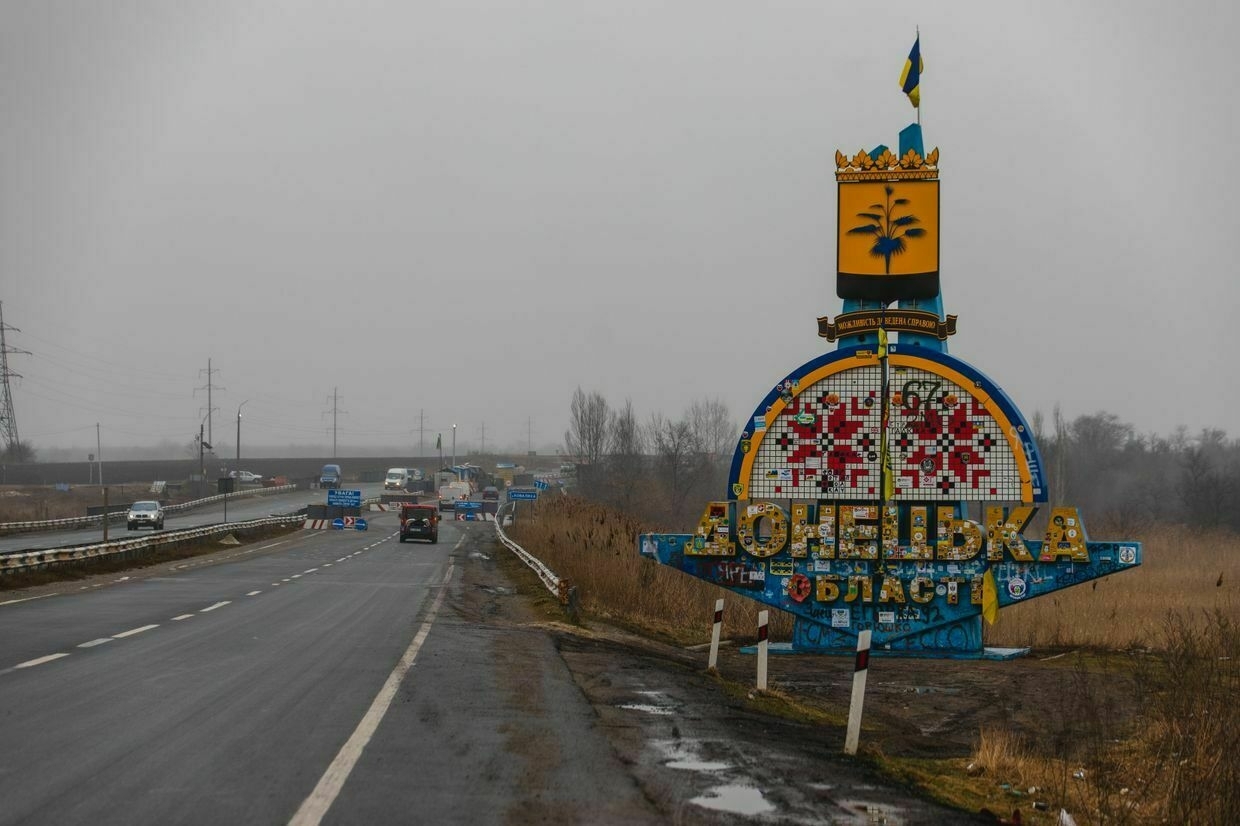
Editor’s note: This is a developing story and is being updated.
Ukrainian forces have withdrawn from one front-line sector in Donetsk Oblast to preserve troops and improve defensive operations, Lieutenant General Serhii Naiev, the commander of a tactical group in the region, reported on March 18.
“This allowed us not only to save our soldiers but also to improve our defense. (Russia) is suffering losses, and we can act more effectively,” Naiev wrote on Facebook. It remains unclear which section of the front line the commander was referring to.
Naiev, the former commander of Ukraine’s Joint Forces, noted that his leadership of the tactical group in Donetsk Oblast has now entered its second month.
Trump boasts of saving Ukrainian soldiers in Kursk Oblast despite Kyiv denying encirclement claimsU.S. President Donald Trump claimed on March 17 that he took an unspecified action to save Ukrainian soldiers in Russia’s Kursk Oblast, repeating an unsubstantiated claim of them being “surrounded.”The Kyiv IndependentMartin Fornusek
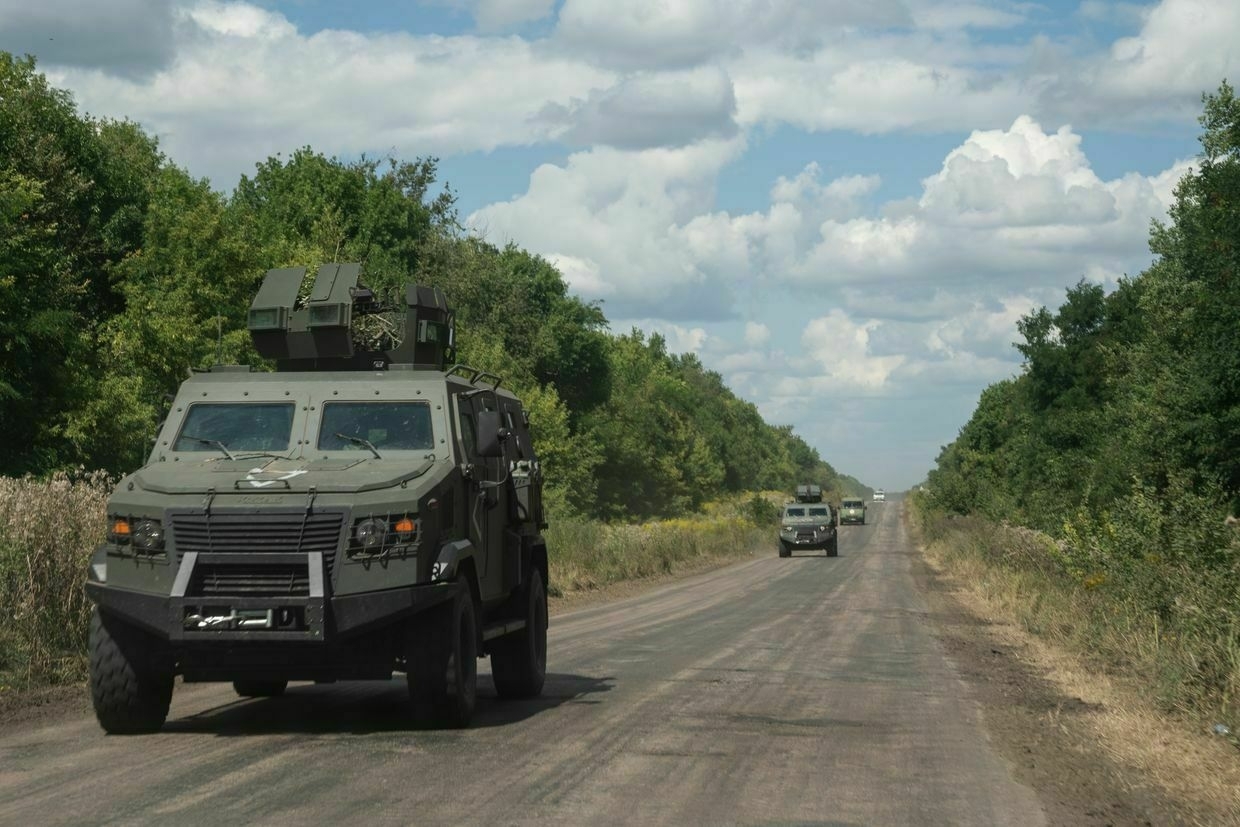
-
Trump's aid cuts disrupt supply of HIV treatments to Ukraine, 7 more countries
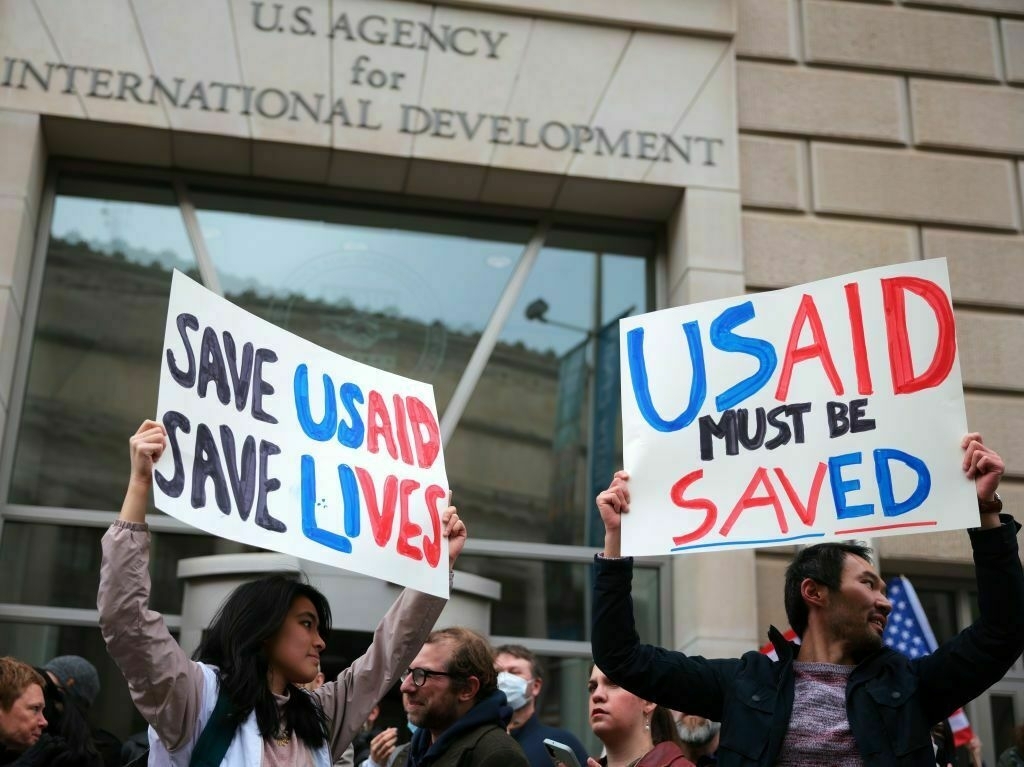
U.S. President Donald Trump’s suspension of foreign aid has disrupted the supply of HIV treatments to Ukraine and seven other countries, potentially reversing two decades of progress in fighting the disease, Reuters reported on March 17, citing the World Health Organization (WHO).
WHO warned that Kenya, Haiti, Lesotho, Burkina Faso, Mali, Nigeria, South Sudan, and Ukraine could run out of critical antiretroviral drugs in the coming months.
HIV treatments are essential in preventing the virus from progressing to AIDS and maintaining the health of those infected.
“The disruptions to HIV programs could undo 20 years of progress,” WHO Director-General Tedros Adhanom Ghebreyesus said at a press conference, adding that the crisis could result in over 10 million additional HIV cases and 3 million related deaths.
On March 10, the Trump administration announced the termination of 83% of the U.S. Agency for International Development’s (USAID) foreign aid contracts.
The cuts have broad implications for humanitarian efforts, particularly in Ukraine, where USAID has provided $2.6 billion in humanitarian aid, $5 billion in development assistance, and over $30 billion in direct budget support since Russia’s full-scale invasion began.
Elon Musk, a close ally of Trump and head of the Department of Government Efficiency (DOGE), has spearheaded efforts to dismantle USAID, eliminating staff positions and attacking the agency’s work in public.
Musk is currently listed as the world’s richest man alive.
The funding suspension poses a significant threat to various Ukrainian organizations and projects that rely on U.S. assistance across multiple sectors.
The move aligns with Trump’s broader strategy of reducing foreign aid, despite concerns from health officials and humanitarian organizations that such cuts will worsen global health crises.
Italy, Spain hesitant on EU’s $43 billion military aid to Ukraine planItalian Foreign Minister Antonio Tajani said the proposal needed further discussion and that Italy was awaiting the outcome of the upcoming call between U.S. President Donald Trump and Russian President Vladimir Putin.The Kyiv IndependentTim Zadorozhnyy
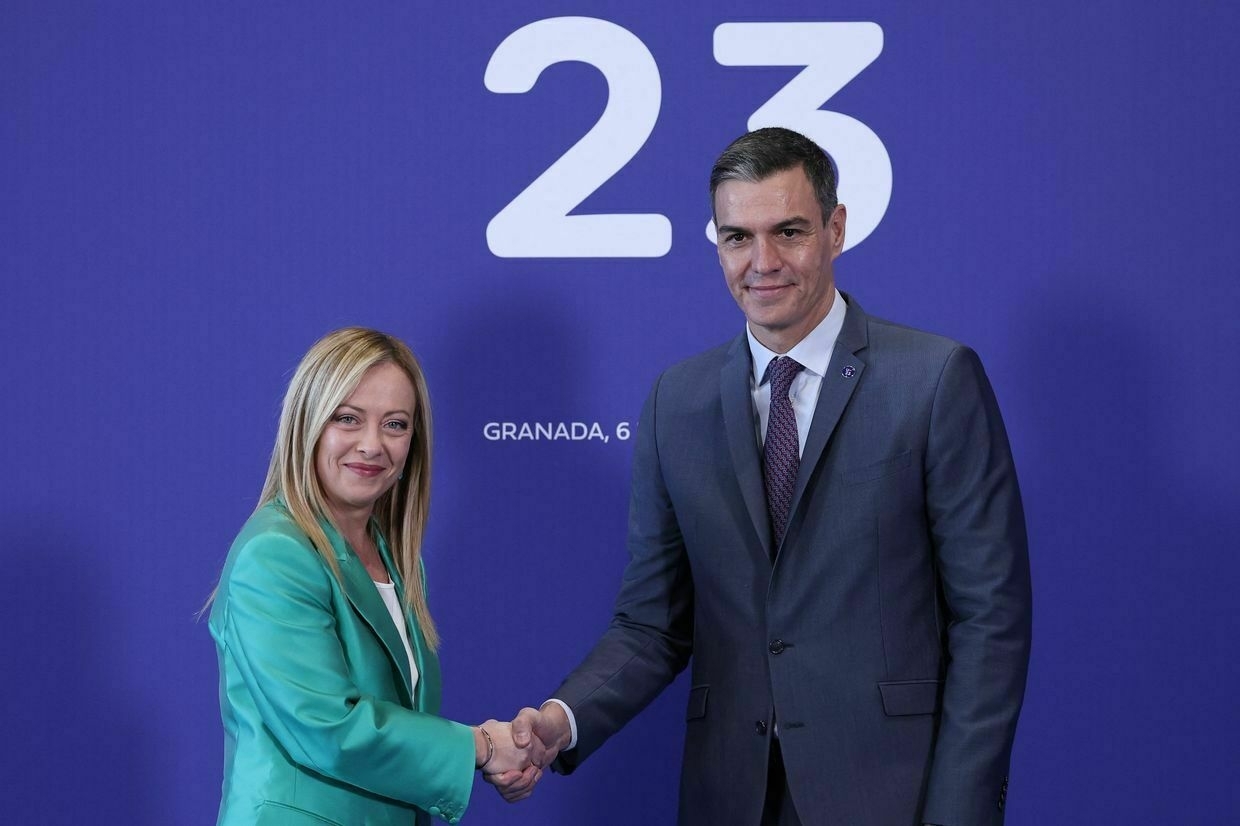
-
Italy, Spain hesitant on EU's $43 billion military aid to Ukraine plan
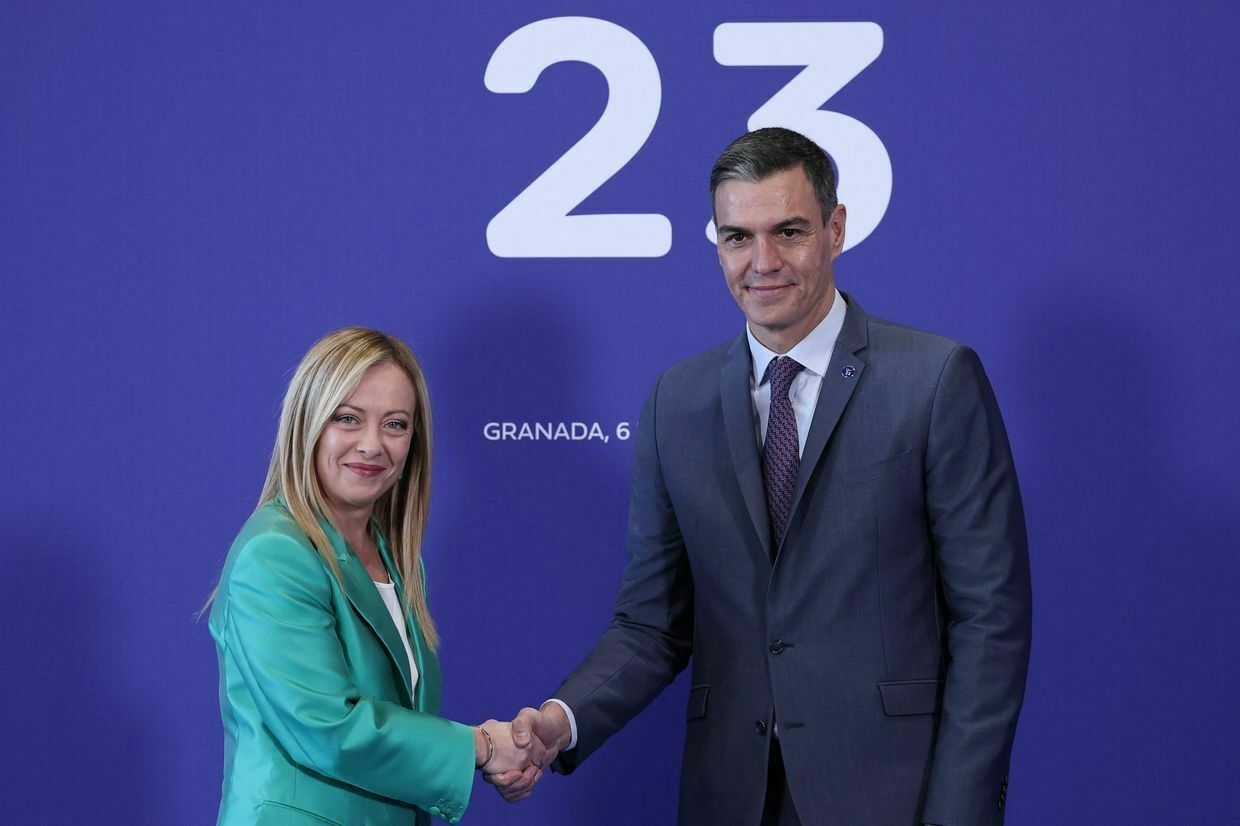
Italy and Spain have signaled reluctance to support the European Union’s proposal to allocate up to 40 billion euros ($43 billion) in military aid to Ukraine this year, Reuters reported on March 17.
The initiative to double EU military aid for Ukraine has “broad political support” among member states, according to EU foreign policy chief Kaja Kallas.
However, divisions persist, particularly between countries geographically closer to Russia — such as Estonia, Denmark, and Lithuania — which have committed more than 2% of their GDP to aid Kyiv, and those further away, which have contributed less.
At the EU foreign ministers' meeting in Brussels on March 17, Italy and Spain, the third- and fourth-largest economies in the bloc, took a cautious approach.
Italian Foreign Minister Antonio Tajani said the proposal needed further discussion and that Italy was awaiting the outcome of the upcoming call between U.S. President Donald Trump and Russian President Vladimir Putin.
“We are waiting for the Trump-Putin telephone call to see if there will be any steps forward in order to reach a ceasefire,” Tajani said.
The U.S. president is set to hold a phone call with Putin on March 18 to discuss ending Russia’s war against Ukraine and a temporary ceasefire.
Spanish Foreign Minister Jose Manuel Albares echoed this sentiment, saying, “We will see how the debate goes, but there is no decision on the matter yet.” He noted that Spain had already committed 1 billion euros ($1.1 billion) in military aid to Ukraine this year.
Both Hungary and Slovakia have refused to provide military aid to Ukraine, but EU officials say they cannot obstruct the plan since contributions will be voluntary.
Hungarian Prime Minister Viktor Orban has consistently delayed EU sanctions on Russia and military assistance for Ukraine, aligning himself with Trump’s approach and expressing hopes for a swift resolution to the war.
Slovak Prime Minister Robert Fico has previously promoted pro-Russian narratives on Ukraine and the war and met Russian President Vladimir Putin in Moscow last December to discuss gas transit issues ahead of Ukraine’s planned transit halt.
Russia ‘not losing hope’ ahead of planned Putin-Trump call, top Putin aide saysRussia is not “losing hope” ahead of a planned call between Russian President Vladimir Putin and U.S. President Donald Trump, Putin’s aide Yuri Ushakov told pro-Kremlin news outlet Kommersant on March 18.The Kyiv IndependentTim Zadorozhnyy
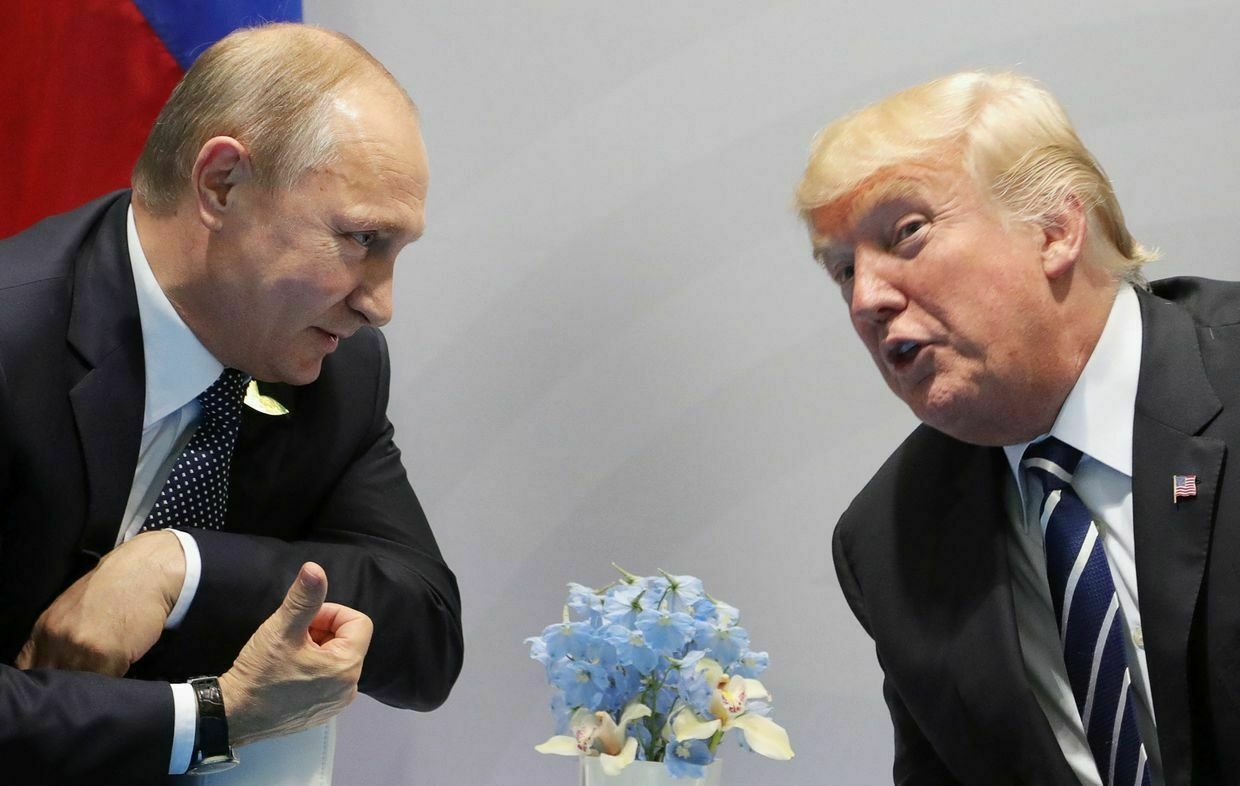
-
Trump boasts of saving Ukrainian soldiers in Kursk Oblast despite Kyiv denying encirclement claims
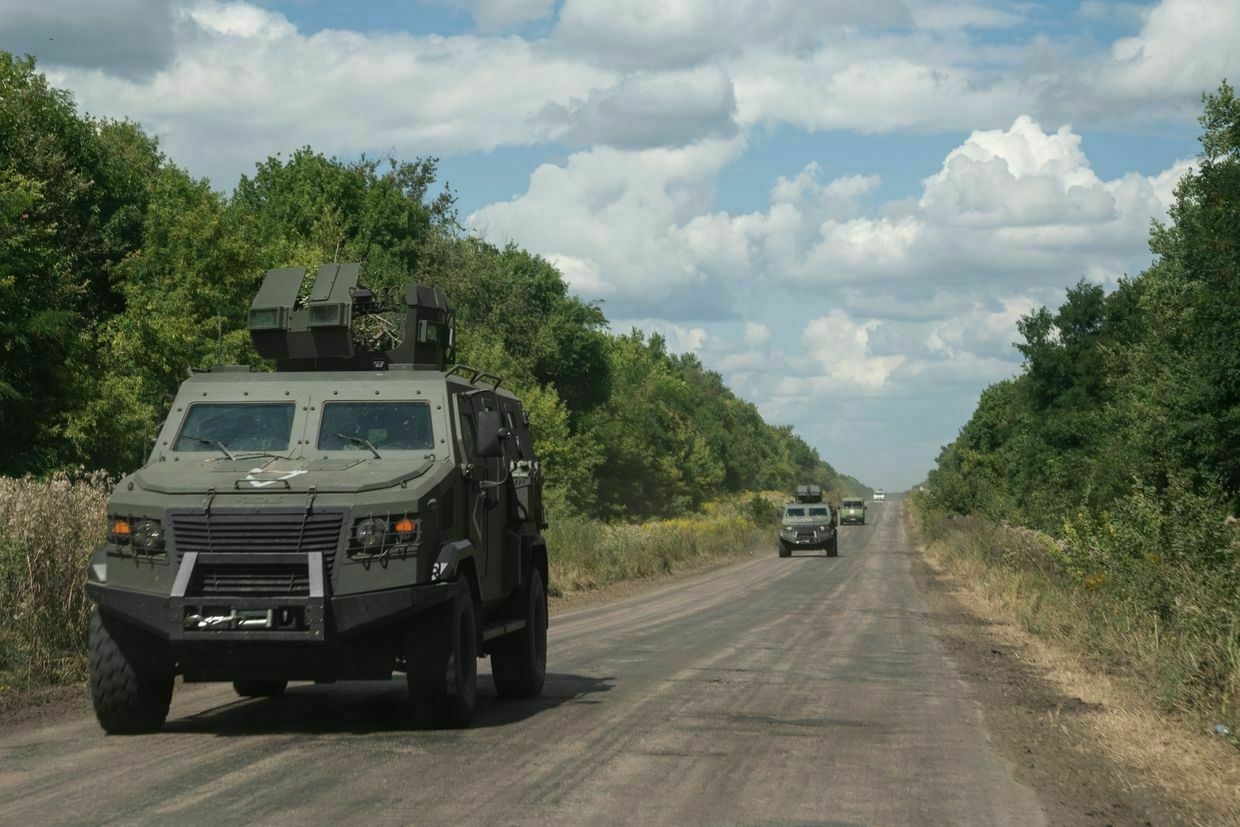
U.S. President Donald Trump claimed on March 17 that he took an unspecified action to save Ukrainian soldiers in Russia’s Kursk Oblast, repeating an unsubstantiated claim of them being “surrounded."
Kyiv has denied that its troops in the Russian border region would be encircled, despite acknowledging a retreat from the town of Sudzha amid a rapid Russian advance.
“They’re surrounded by Russian soldiers, and I believe if it wasn’t for me, they wouldn’t be here any longer,” Trump said at a briefing, according to the AP news agency. The U.S. president has not specified what steps he has taken or provided evidence of Ukraine’s purported encirclement.
Ukraine launched its cross-border incursion into Kursk Oblast in August 2024 but reportedly lost much of the territory following a Russian counterattack earlier this month. Russian advances, reinforced by North Korean troops, coincided with the U.S. pausing intelligence and military support for Ukraine.
Talking to journalists, Trump voiced his belief that the pause did not negatively impact the Ukrainian positions in Kursk Oblast.
Trump made the comments ahead of a planned call with Russian President Vladimir Putin on March 18 to discuss a possible peace deal for Ukraine. The U.S. president said that “many elements of a Final Agreement have been agreed to, but much remains."
The two leaders are expected to discuss a U.S.-proposed 30-day ceasefire, which was agreed upon between Kyiv and Washington during talks in Saudi Arabia on March 11. After Ukraine backed the truce, the U.S. resumed its military and intelligence support.
On March 13, Putin signaled openness to the ceasefire but demanded guarantees that Ukraine would not mobilize, train troops, or receive military aid during the truce, raising concerns about renewed Russian aggression.
‘Talk about an invasion is everywhere’ — How Lithuania is preparing for war with RussiaThroughout Russia’s full-scale invasion of Ukraine, repeated and escalating warnings of the potential for a wider war have only raised fears in the Baltic states that they could be next in the crosshairs of the Kremlin. Talk about a potential Russian invasion is “very common at parties, gatherings,…The Kyiv IndependentYuliia Taradiuk
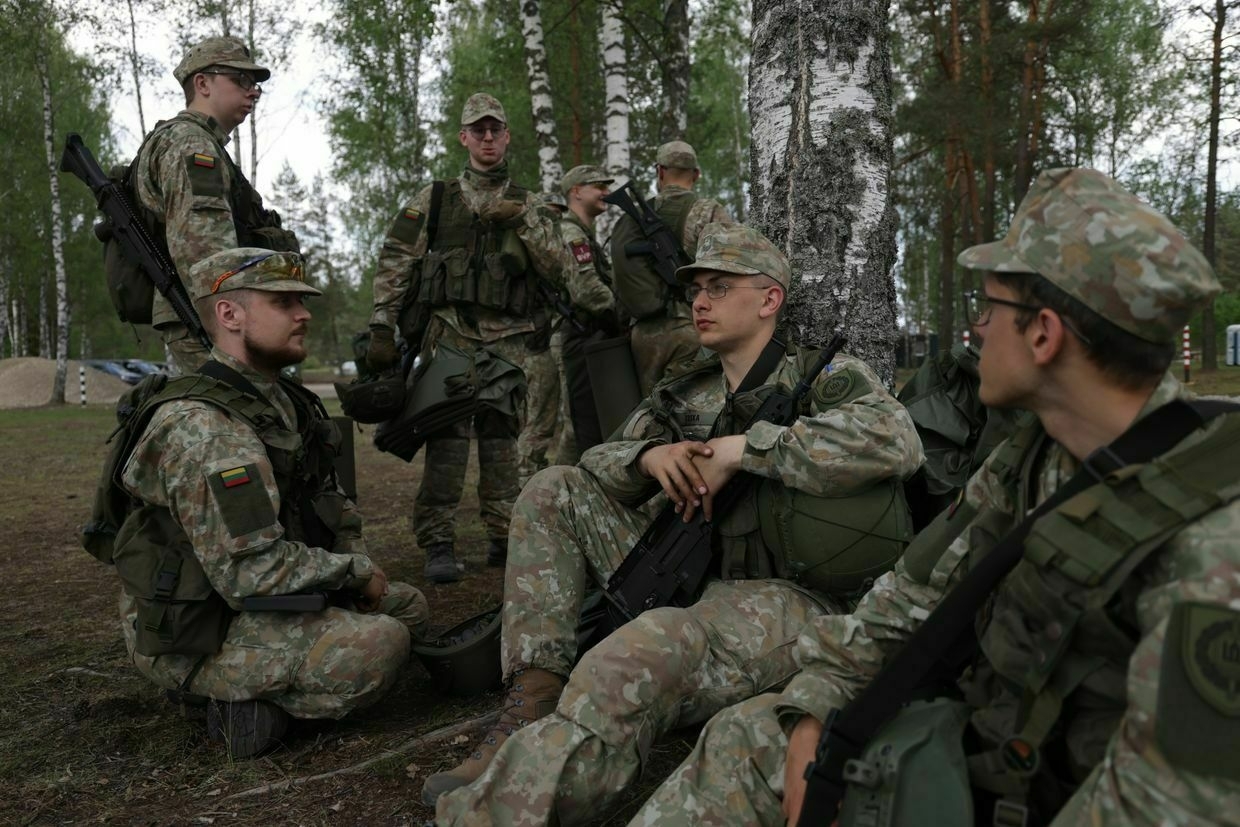
-
2 killed, 13 injured in Russian attacks across Ukraine over past day
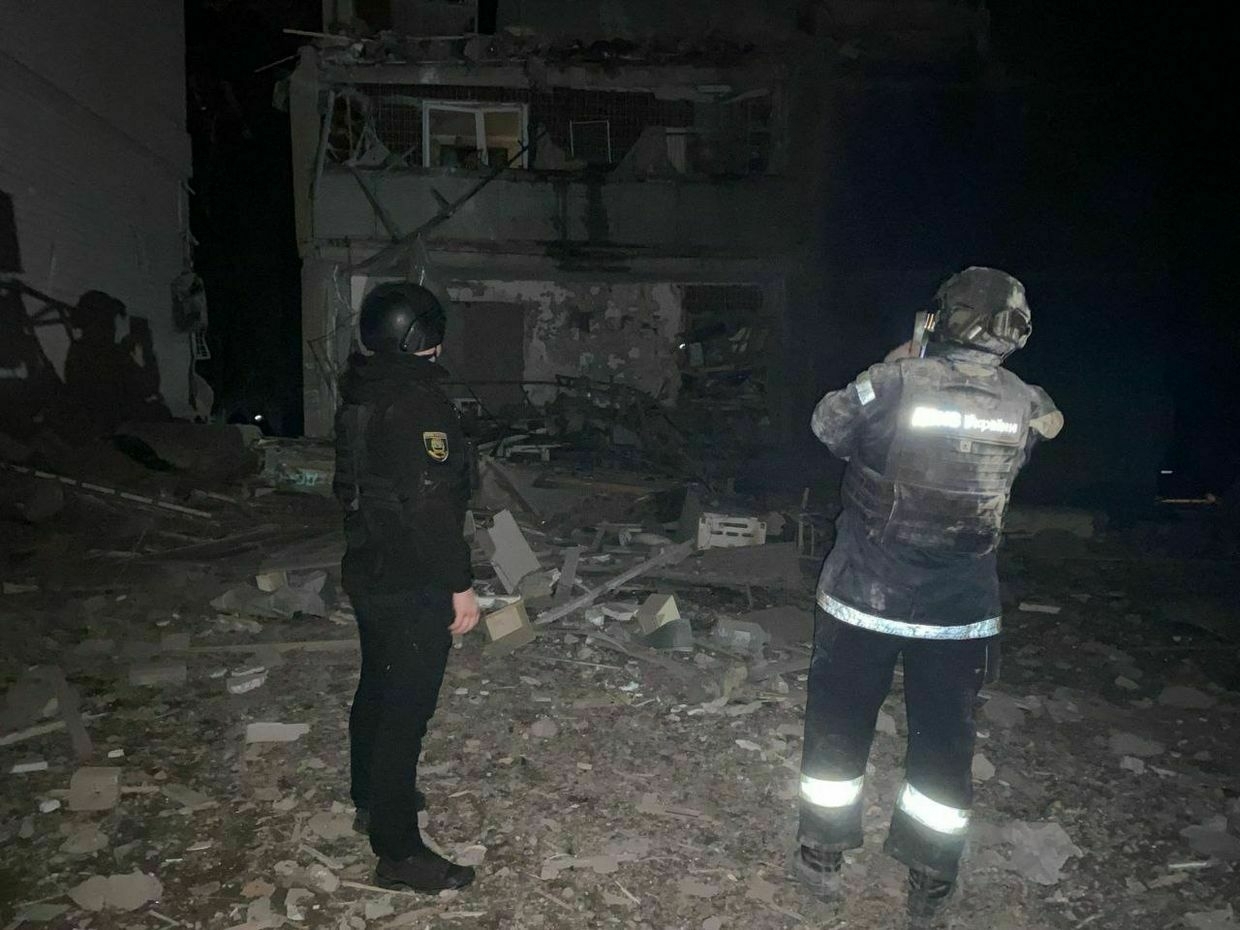
Russian attacks against Ukraine killed at least two civilians and injured at least 13 over the past day, regional authorities reported on March 18.
Ukrainian air defenses shot down 63 of the 137 Russian attack and decoy drones overnight over 12 oblasts, the Air Force said. Sixty-four decoy drones reportedly disappeared from radars without causing damage.
In Donetsk Oblast, Russian attacks injured three people in Pokrovsk and two in Kostiantynivka, according to Governor Vadym Filashkin.
A woman was injured during a drone attack against the village of Riasne in Kharkiv Oblast, Governor Oleh Syniehubov reported. A school, a gymnasium, houses, and enterprises were damaged elsewhere in the region.
Two people were killed and seven injured during Russian strikes in Kherson Oblast, said Oleksandr Prokudin, the regional governor. Twelve houses, a humanitarian aid distribution point, and a car were damaged.
Air defenses were operating in Kyiv overnight amid a Russian drone attack. Drone wreckage fell on the territory of a school in the Desnianskyi district, Mayor Vitali Klitschko said, without mentioning any casualties.
Who is to gain more from a ceasefire — Russia or Ukraine?U.S. President Donald Trump said on March 17 that he expects to hold a phone call with his Russian counterpart Vladimir Putin to discuss a U.S.-backed ceasefire proposal that Moscow has yet to agree to. Russia has declined to immediately accept the 30-day ceasefire proposal, with theThe Kyiv IndependentOleg Sukhov
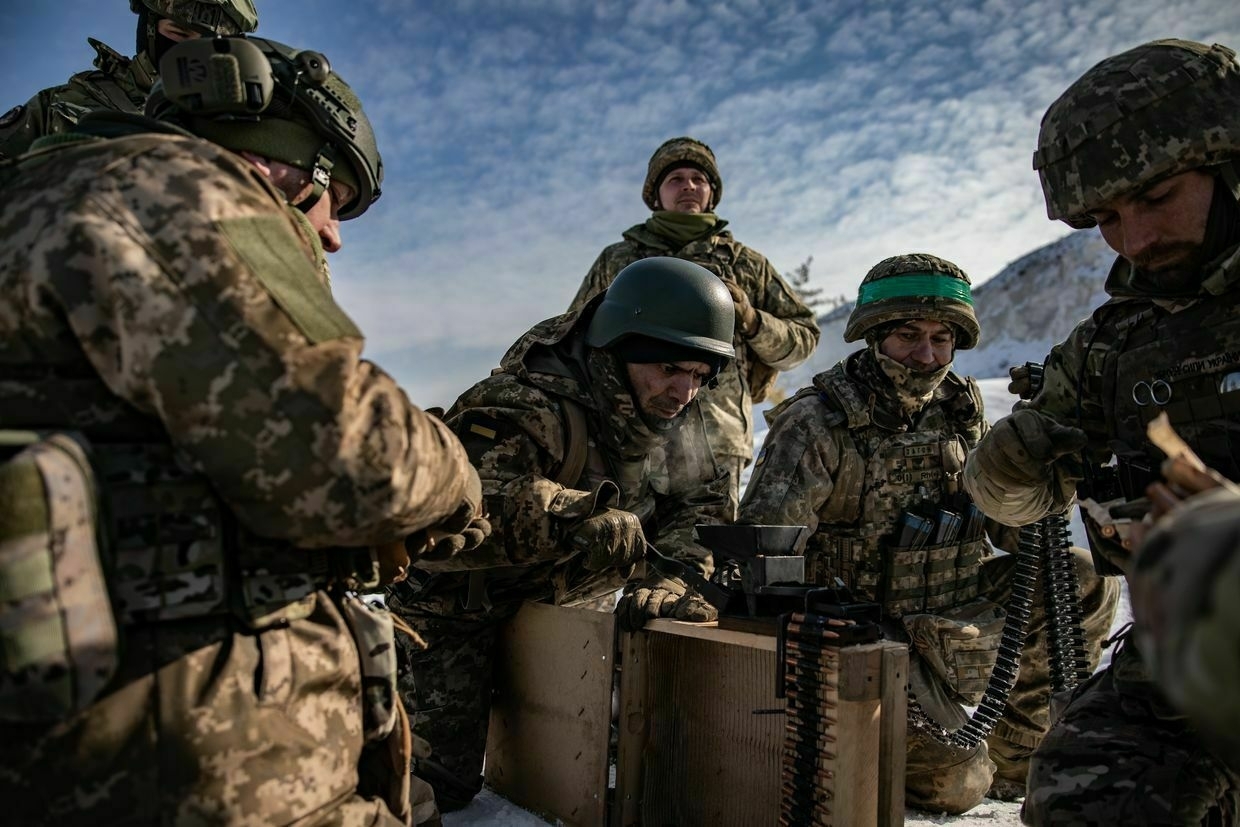
-
Russia 'not losing hope' ahead of planned Putin-Trump call, top Putin aide says
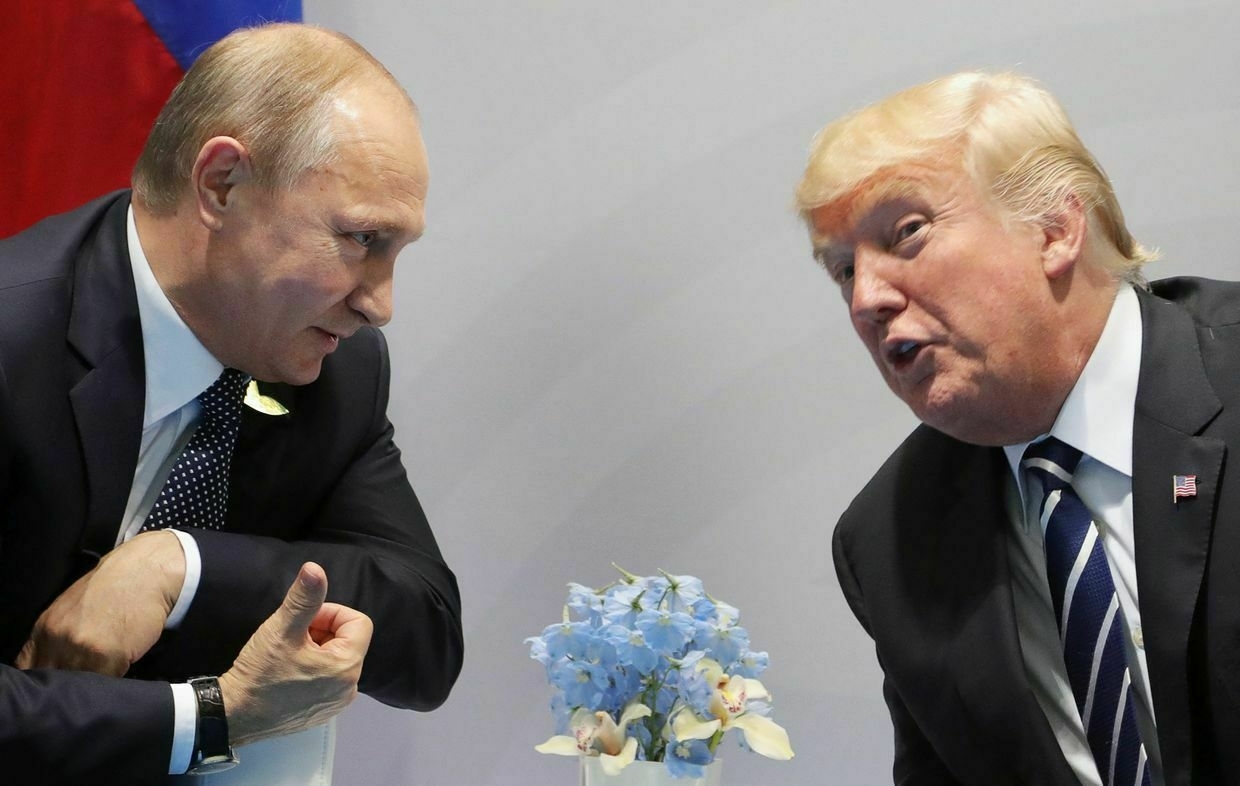
Russia is not “losing hope” ahead of a planned call between Russian President Vladimir Putin and U.S. President Donald Trump, Putin’s aide Yuri Ushakov told pro-Kremlin news outlet Kommersant on March 18.
“It’s been a week since the proposal (for a 30-day ceasefire). And what are we seeing? The most powerful attack by the Ukrainian Armed Forces drones on Russian territory in history. And then another attack. But we are not losing hope! We cling to everything,” Ushakov said.
Russian authorities claimed to have intercepted 337 Ukrainian drones across multiple regions on March 11, marking the largest drone strike against Russia during the full-scale war.
Meanwhile, Russia continues its near-daily attacks on Ukrainian cities, launching missiles and drones at civilian and energy infrastructure.
The planned call between Trump and Putin follows U.S.-led negotiations in Saudi Arabia, where Washington proposed a 30-day ceasefire between Russia and Ukraine. Kyiv accepted the deal during bilateral talks in Jeddah on March 11, leading the U.S. to resume military and intelligence support for Ukraine.
On March 13, Putin said Russia was also open to the ceasefire but demanded guarantees that Ukraine would halt mobilization, military training, and foreign aid deliveries during the truce, potentially leaving it vulnerable to renewed Russian offensives.
Trump has confirmed that he will speak with Putin on March 18, saying that many elements of a potential peace agreement are already in place.
“Thousands of young soldiers, and others, are being killed. Each week brings 2,500 soldier deaths, and it must end now,” Trump wrote on Truth Social on March 17, without providing evidence to back up the figure.
The U.S. president previously held a call with Putin on Feb. 12, after which he announced that negotiations to end the war would begin “immediately.”
The upcoming talks are seen as a crucial moment in assessing whether the U.S. and Russia can negotiate a ceasefire that is acceptable to both Ukraine and Moscow.
Trump administration weighs recognizing Crimea as Russian territory, Semafor reportsThe potential move comes as U.S. President Donald Trump prepares for a call with Vladimir Putin on March 18, with a proposed 30-day ceasefire on the table.The Kyiv IndependentOlena Goncharova
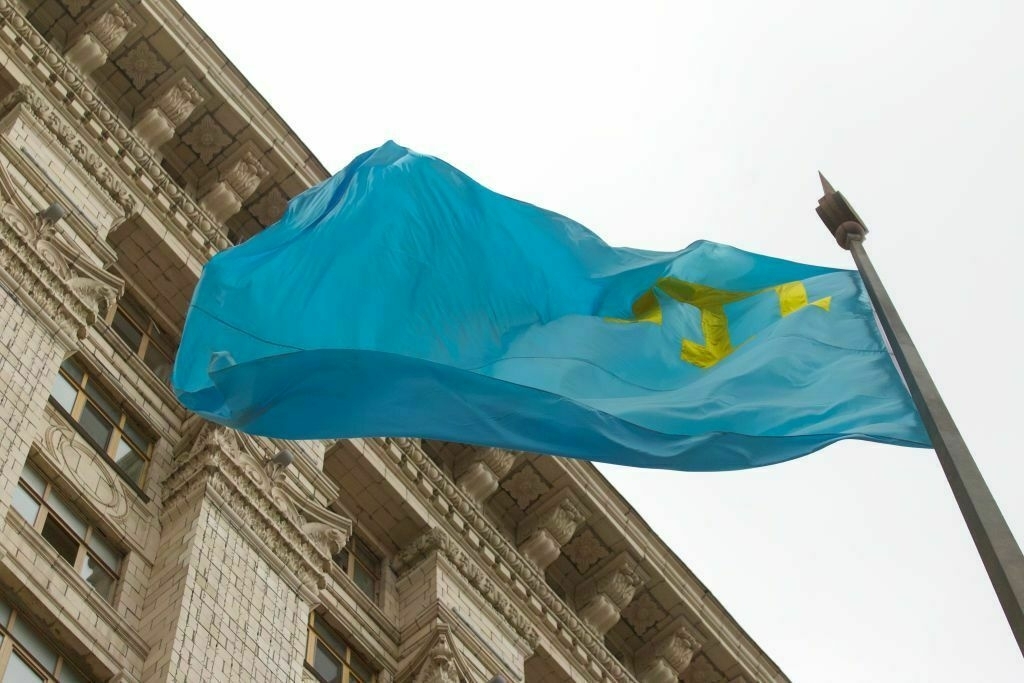
-
UK, EU to discuss confiscating Russian assets ahead of Ukraine peace talks, Bloomberg reports
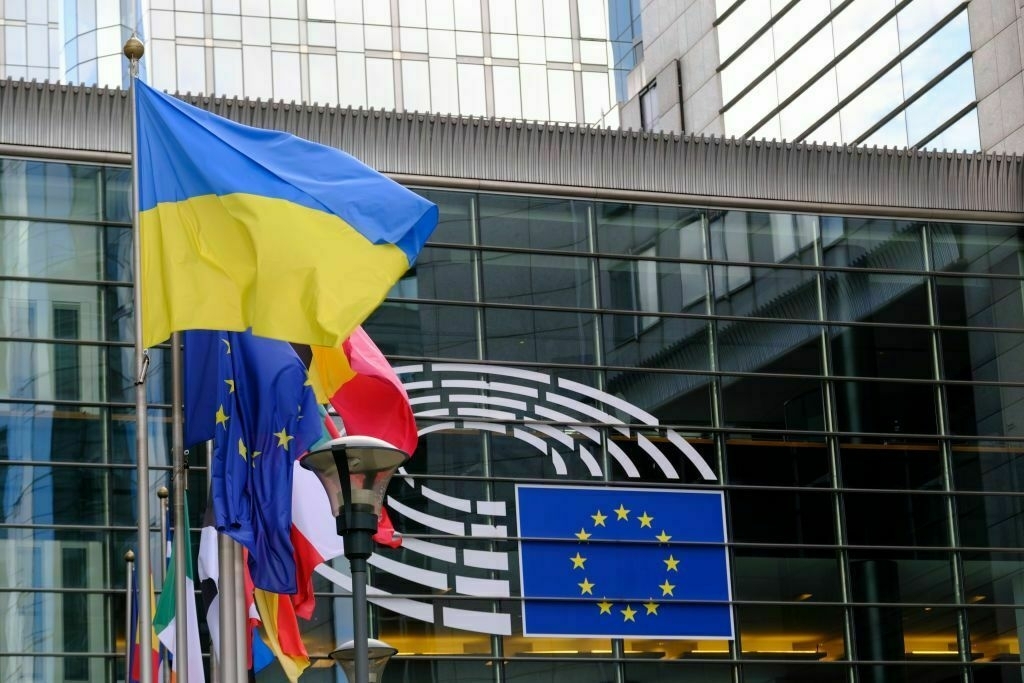
The U.K. and the European Union will discuss confiscating Russian assets to ramp up economic pressure on Moscow ahead of possible peace talks on Ukraine, Bloomberg reported on March 17, citing unnamed sources.
Negotiations will reportedly focus on establishing the legal and financial framework to seize Russian assets despite opposition from some EU member states, particularly Belgium and Germany.
Western nations froze roughly $300 billion in Russian assets after Russia launched its full-scale invasion of Ukraine in February 2022, with roughly two-thirds held in Europe.
British Foreign Secretary David Lammy and EU diplomacy chief Kaja Kallas are expected to discuss the issue during their meeting on March 18, according to Bloomberg.
The talks will also cover the EU’s proposal to invest 150 billion euros ($163 billion) of EU loans in armaments for third countries, including the U.K., Norway, and Switzerland.
While Ukraine has received loans backed by the interest earned from these assets, Kyiv has repeatedly called for full confiscation to fund its defense and reconstruction.
In October 2024, the Group of Seven (G7) agreed to provide Ukraine with nearly $50 billion in loans backed by the revenue generated from frozen Russian assets.
Trump administration weighs recognizing Crimea as Russian territory, Semafor reportsThe potential move comes as U.S. President Donald Trump prepares for a call with Vladimir Putin on March 18, with a proposed 30-day ceasefire on the table.The Kyiv IndependentOlena Goncharova
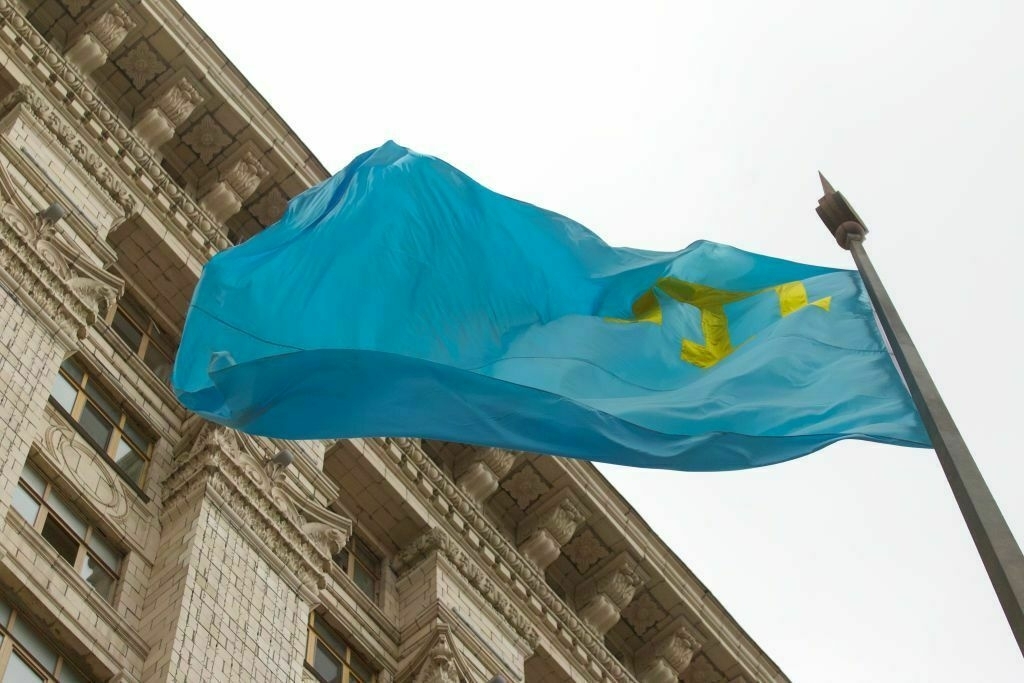
-
Telegram CEO Durov returns to Dubai amid French investigation
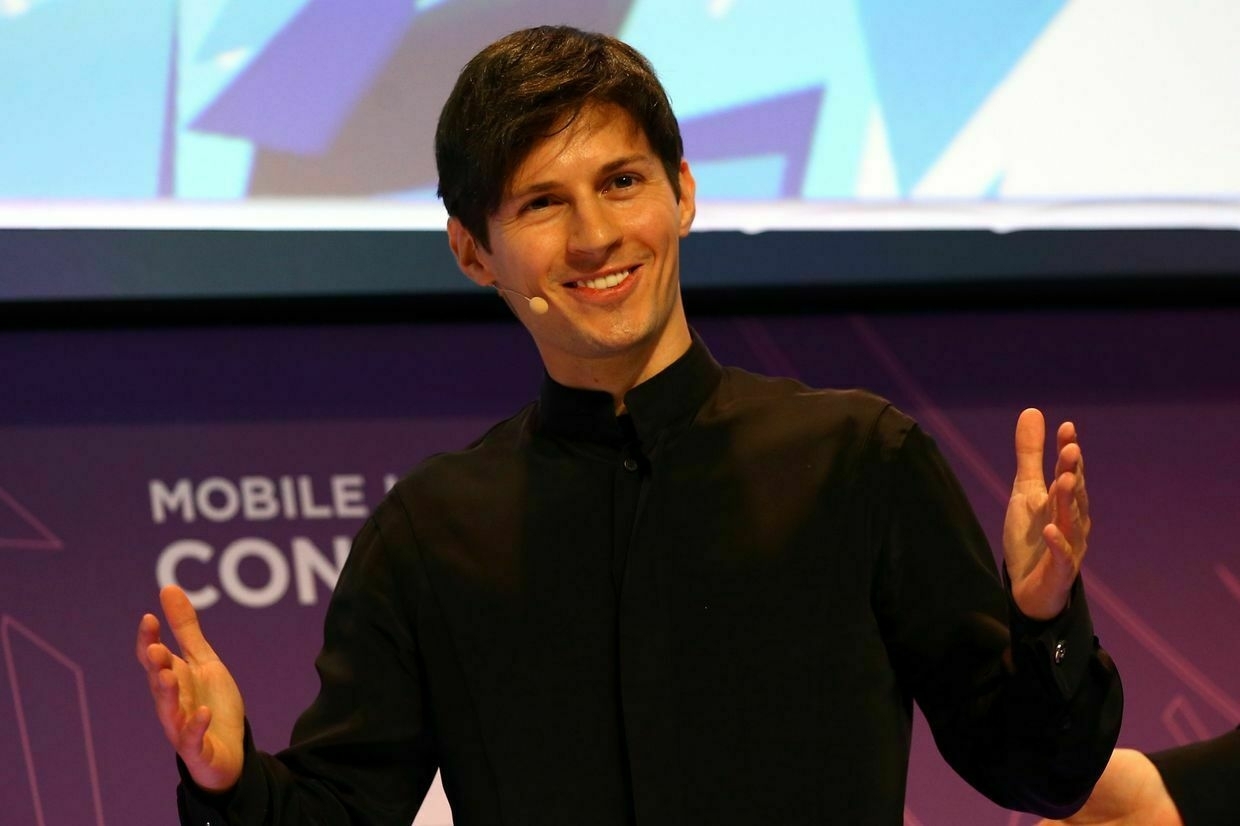
Pavel Durov, Telegram’s Russian-born founder and CEO, said on March 17 that he had returned to Dubai after spending several months in France over an investigation into criminal activity on his messaging app.
The entrepreneur, who also holds French and Emirati citizenship, said that the investigating judges allowed him to depart even though the probe is ongoing.
Durov was arrested at the Le Bourget airport outside of Paris in August 2024 and faces numerous charges related to his social network, including allowing terrorism, drug trafficking, fraud, money laundering, and child abuse content on Telegram. The founder of the messaging app faces up to 20 years in prison.
“As you may have heard, I’ve returned to Dubai after spending several months in France due to an investigation related to the activity of criminals on Telegram,” the businessman said on his personal Telegram channel.
“The process is ongoing, but it feels great to be home."
Durov left France on March 15 after the judges allowed him to stay abroad for “several weeks,” undisclosed sources told the AFP news agency.
Telegram is one of the world’s top messaging apps, with over 950 million users worldwide.
Durov, with a net worth estimated at $15.5 billion, left Russia in 2014 after refusing to comply with government demands to shut down opposition communities on his VK social media platform, which he subsequently sold.
An investigation by an independent Ukrainian group nevertheless revealed that Durov had visited Russia more than 60 times since 2014, contradicting the businessman’s claims of being an exile and a pariah in his home country.
Critical Ukraine coverage at risk as Trump slashes Radio Free Europe fundingThe U.S. decision to cut off funding for Radio Free Europe/Radio Liberty came as a surprise for the outlet’s newsroom, a source in the RFE/RL’s Ukrainian Service told the Kyiv Independent. “We understood that the U.S. president, to put it mildly, does not like us,The Kyiv IndependentKateryna Denisova
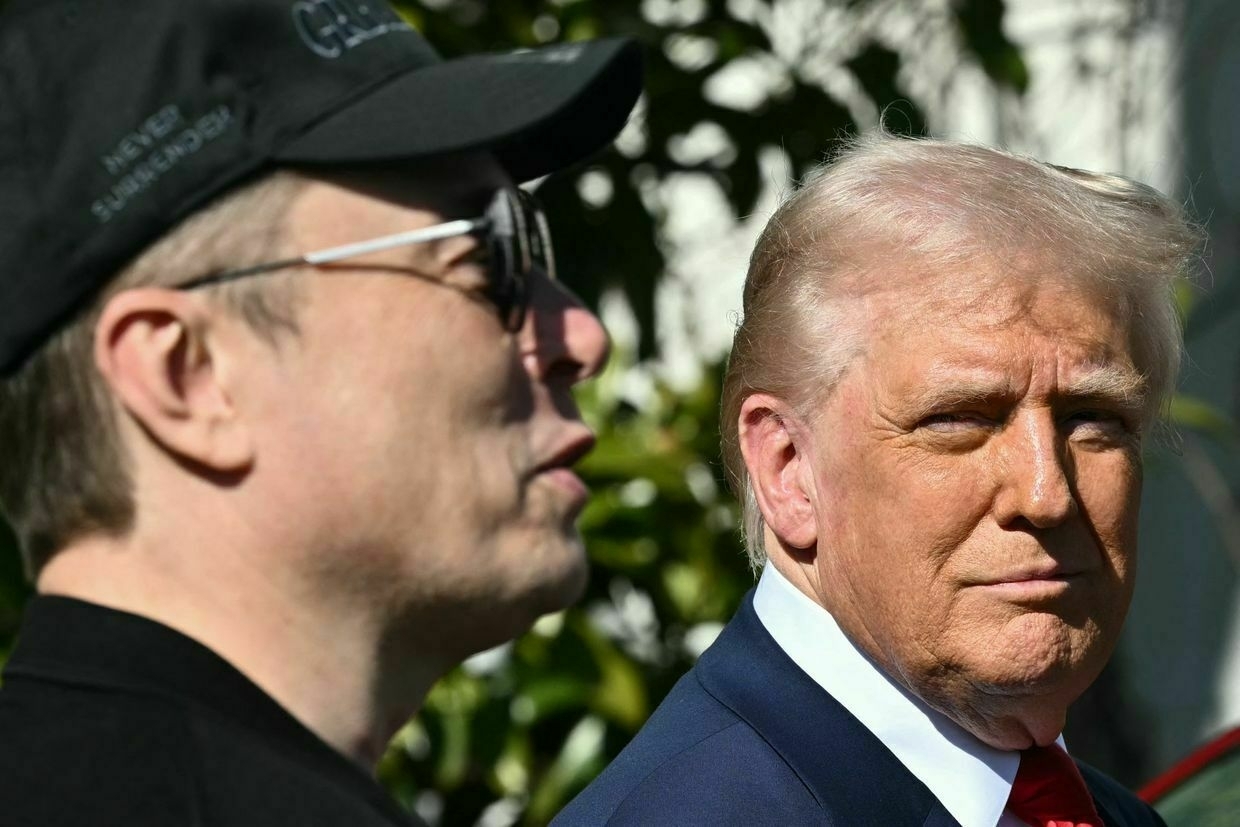
-
Trump administration weighs recognizing Crimea as Russian territory, Semafor reports
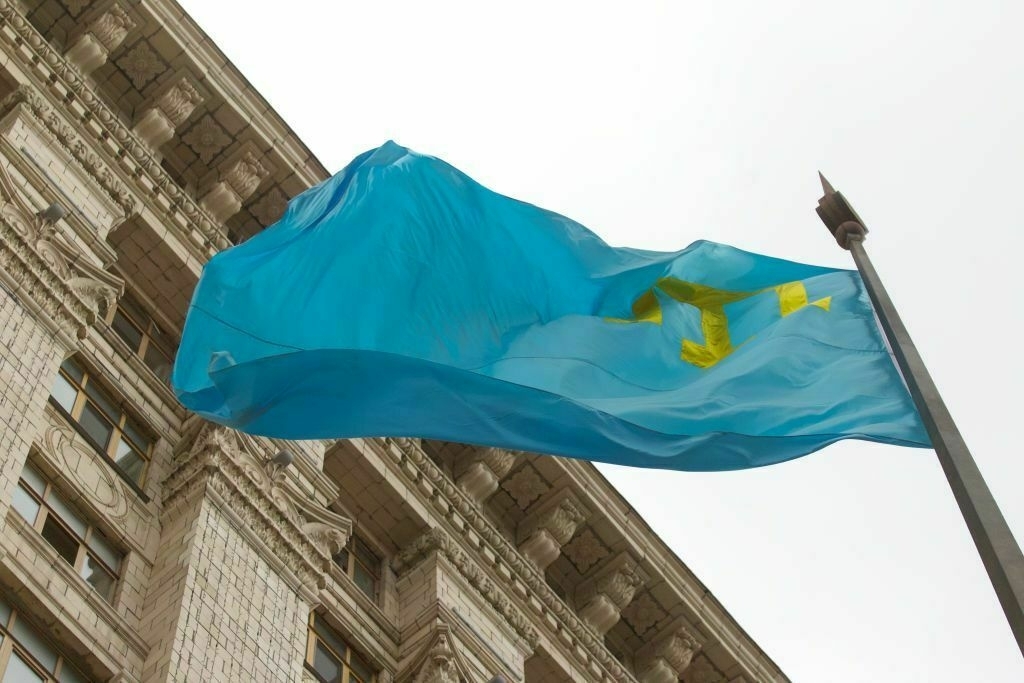
The Trump administration is considering recognizing Crimea as Russian territory as part of a broader deal to end Russia’s war on Ukraine, two sources familiar with the discussions told Semafor.
Officials have also explored urging the United Nations to follow suit, aligning U.S. policy with Russian President Vladimir Putin’s long-held stance on the region.
The potential move comes as Trump prepares for a call with Putin on March 18, with a proposed 30-day ceasefire on the table. Speaking to reporters aboard Air Force One, Trump hinted that negotiators had already discussed “dividing up certain assets.”
However, the White House has not made a final decision. In a statement, National Security Council spokesman Brian Hughes denied any commitments, emphasizing that the administration would not negotiate through the media.
‘We had to get Ukraine to do the right thing’ — Trump on his Oval Office clash with ZelenskyU.S. President Donald Trump said on March 17 that his argument with President Volodymyr Zelensky during the Ukrainian leader’s visit to the Oval Office was part of a strategy to pressure Ukraine.The Kyiv IndependentOlena Goncharova
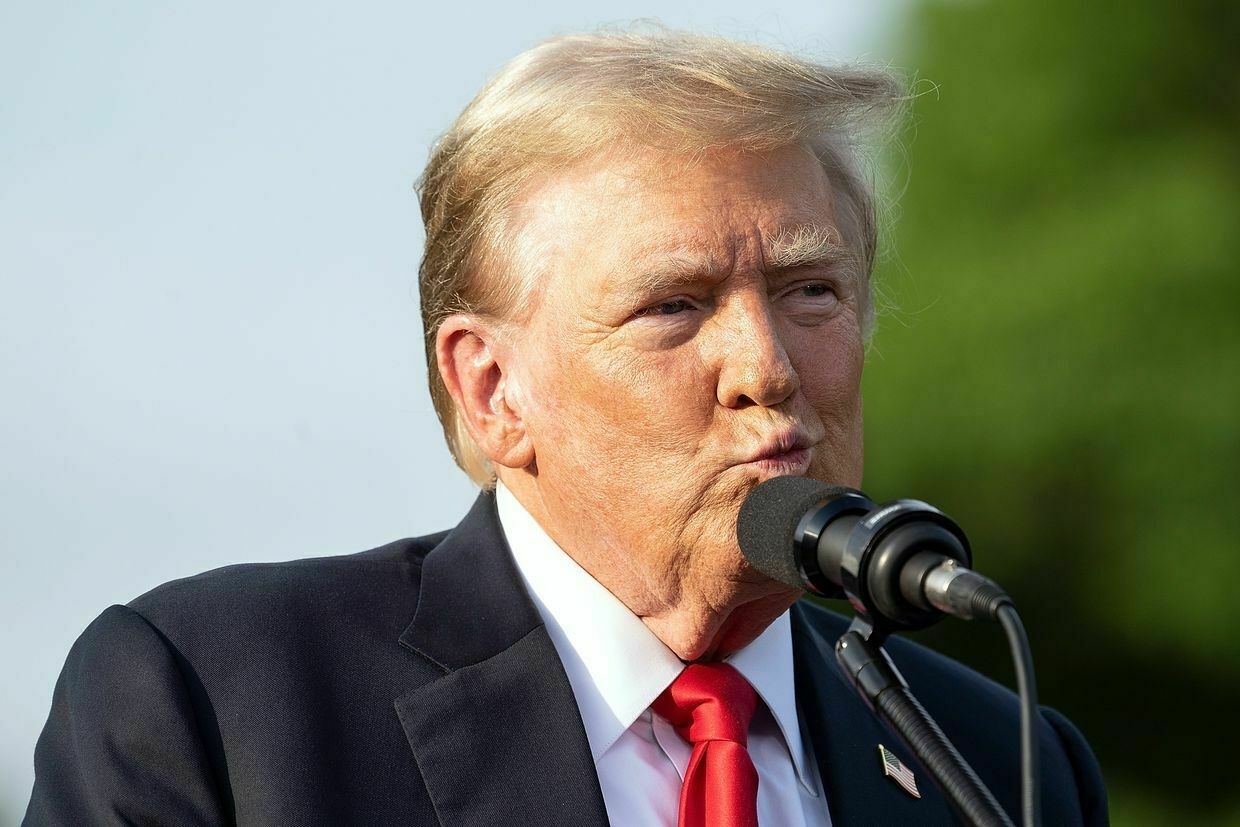
U.S. officials have previously suggested that Ukraine may need to make territorial concessions to end the war. Secretary of State Marco Rubio acknowledged the suffering of Ukrainians but argued that some form of compromise might be necessary. However, Kyiv has consistently rejected any territorial losses, and European allies would likely oppose such a shift in U.S. policy.
Despite continued international recognition of Crimea as part of Ukraine, experts question whether Kyiv can retake the peninsula through military means. President Volodymyr Zelensky admitted last year that Crimea’s return would likely require diplomatic efforts, which Russia has been unwilling to entertain.
Trump has floated the idea of recognizing Crimea as Russian since before his presidency. In a 2018 interview, he suggested that Crimeans preferred Russian rule, saying, “You have to look at that, also."
‘Talk about an invasion is everywhere’ — How Lithuania is preparing for war with RussiaThroughout Russia’s full-scale invasion of Ukraine, repeated and escalating warnings of the potential for a wider war have only raised fears in the Baltic states that they could be next in the crosshairs of the Kremlin. Talk about a potential Russian invasion is “very common at parties, gatherings,…The Kyiv IndependentYuliia Taradiuk
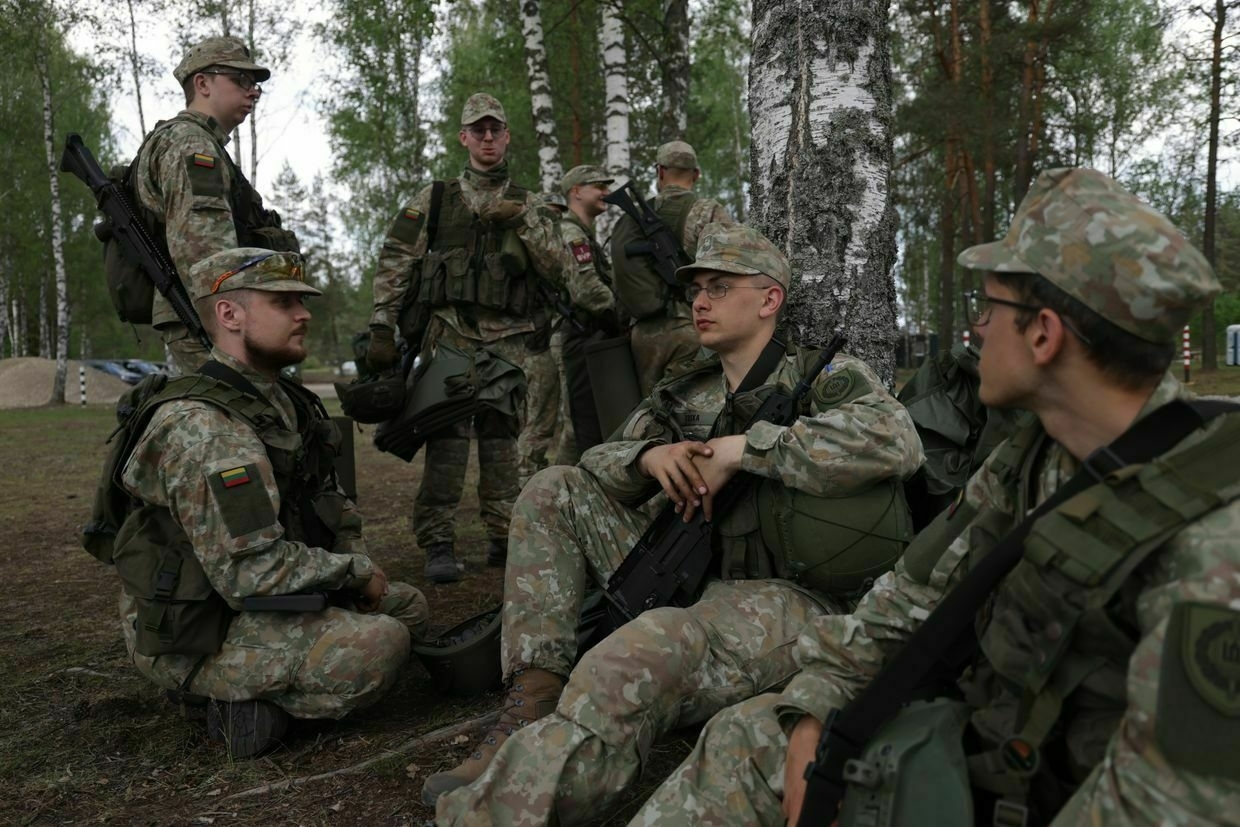
-
'We had to get Ukraine to do the right' thing' — Trump on his Oval Office clash with Zelensky
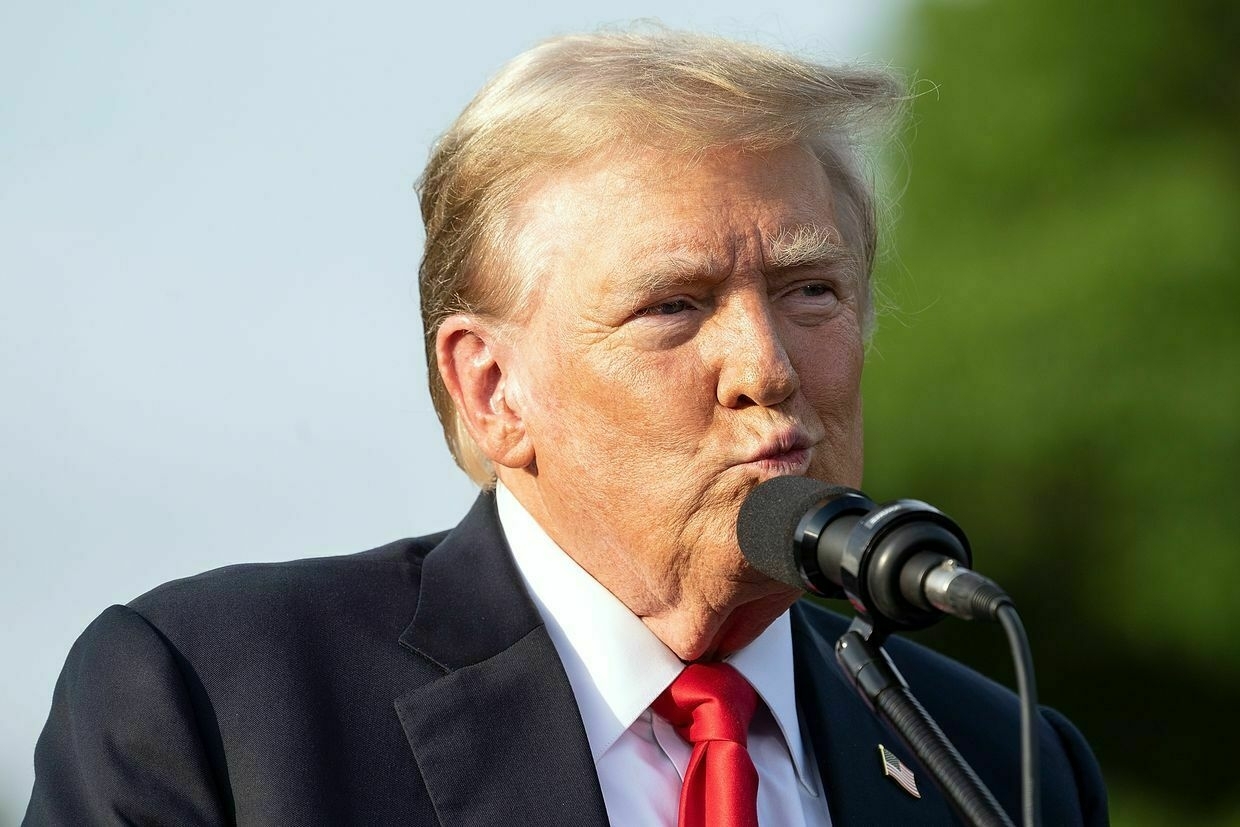
U.S. President Donald Trump said on March 17 that his argument with President Volodymyr Zelensky during the Ukrainian leader’s visit to the Oval Office was part of a strategy to pressure Ukraine.
“A lot of people are being killed over there and we had to get Ukraine to do the right thing. It was not an easy situation,” Trump told reporters at the Kennedy Center. “You got to see a little glimpse at the Oval Office, but I think they are doing the right thing now, and we are trying to get the peace agreement done. We want to get ceasefire and then a peace agreement.”
Zelensky and Trump held a tense 45-minute press briefing in the Oval Office on Feb. 28, which ended in a heated argument over U.S. aid to Ukraine and the cancellation of a planned mineral agreement.
After the meeting, Trump accused Zelensky of disrespecting the U.S. and said on Truth Social that “he can come back when he is ready for peace.” The dispute escalated during the press conference following Zelensky’s response to remarks by U.S. Vice President JD Vance.
Who is to gain more from a ceasefire — Russia or Ukraine?U.S. President Donald Trump said on March 17 that he expects to hold a phone call with his Russian counterpart Vladimir Putin to discuss a U.S.-backed ceasefire proposal that Moscow has yet to agree to. Russia has declined to immediately accept the 30-day ceasefire proposal, with theThe Kyiv IndependentOleg Sukhov
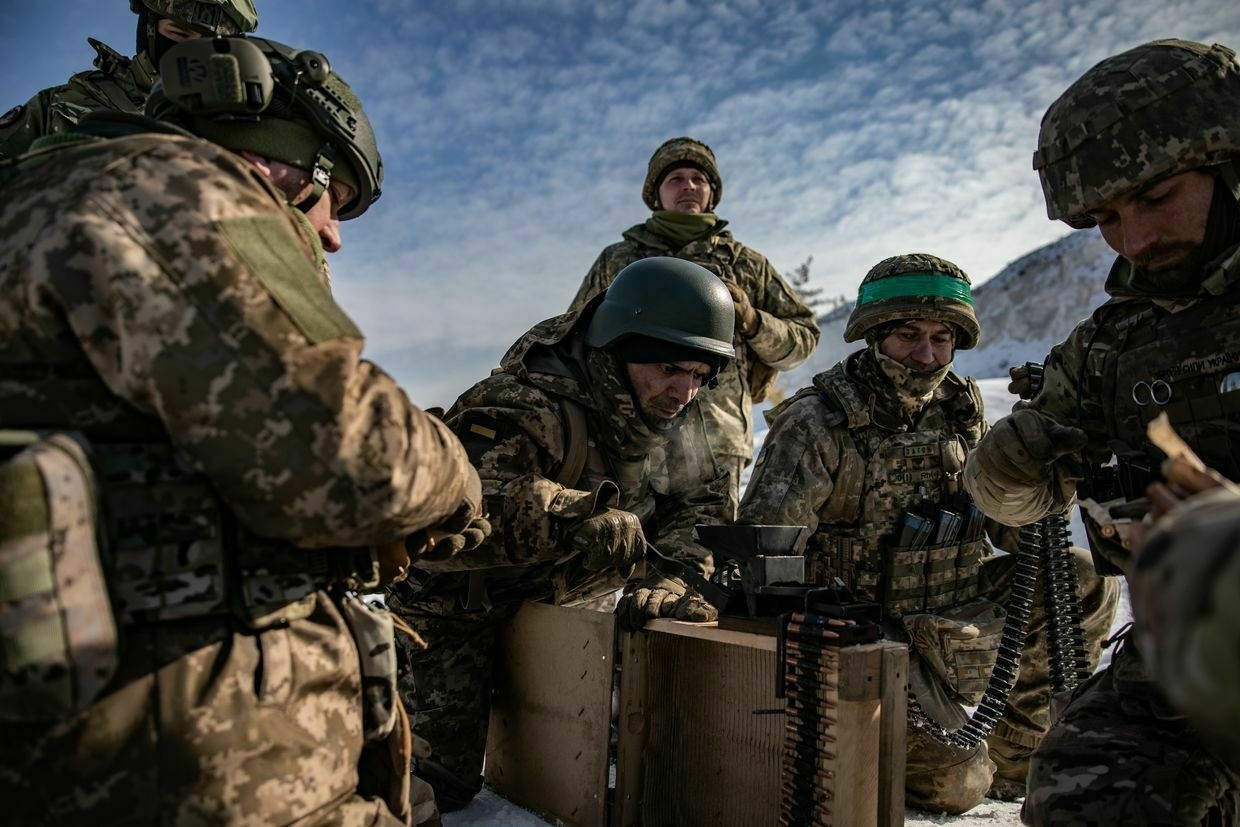
Following the argument, the Trump administration suspended intelligence and military aid to Ukraine for about a week. Tensions started to ease by March 4, when Zelensky apologized to Trump, expressing readiness to work with Trump’s leadership for lasting peace and reiterating Ukraine’s commitment to ending the war.
Trump previously said he plans to have a phone call with Russian President Vladimir Putin on March 18.
The planned call follows U.S.-led talks in Saudi Arabia, where Washington proposed a 30-day Russia-Ukraine ceasefire. Kyiv accepted the deal on March 11, leading the U.S. to resume military and intelligence support.
On March 13, Putin signaled Russia’s willingness but demanded guarantees that Ukraine wouldn’t mobilize, train troops, or receive military aid during the truce, raising concerns about renewed Russian aggression.
“It’s a bad situation in Russia, and it’s a bad situation in Ukraine,” Trump said. “What’s happening in Ukraine is not good, but we’re going to see if we can work a peace agreement, a ceasefire, and I think we will be able to do it. And I’m speaking to President Putin tomorrow morning.”
Critical Ukraine coverage at risk as Trump slashes Radio Free Europe fundingThe U.S. decision to cut off funding for Radio Free Europe/Radio Liberty came as a surprise for the outlet’s newsroom, a source in the RFE/RL’s Ukrainian Service told the Kyiv Independent. “We understood that the U.S. president, to put it mildly, does not like us,The Kyiv IndependentKateryna Denisova
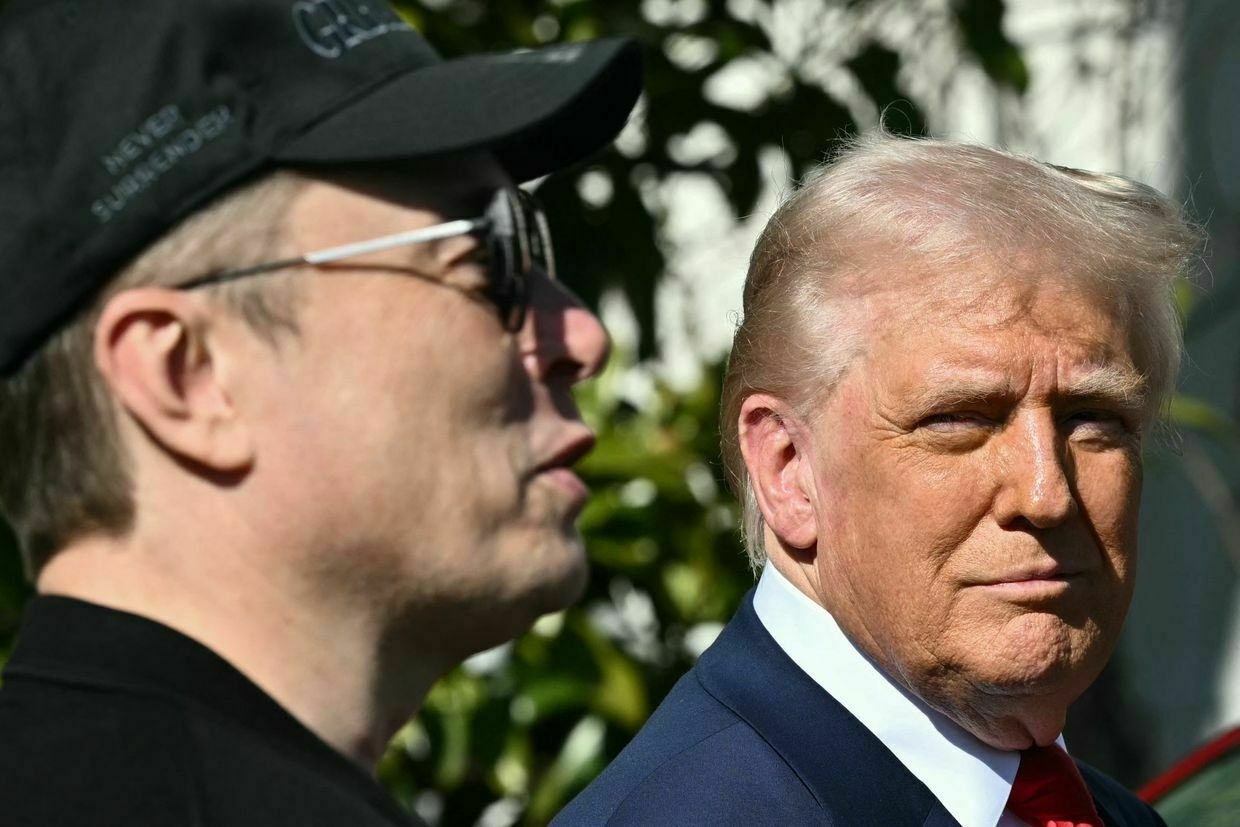
-
Belarus authorities sentence Japanese citizen to 7 years in prison on espionage charges
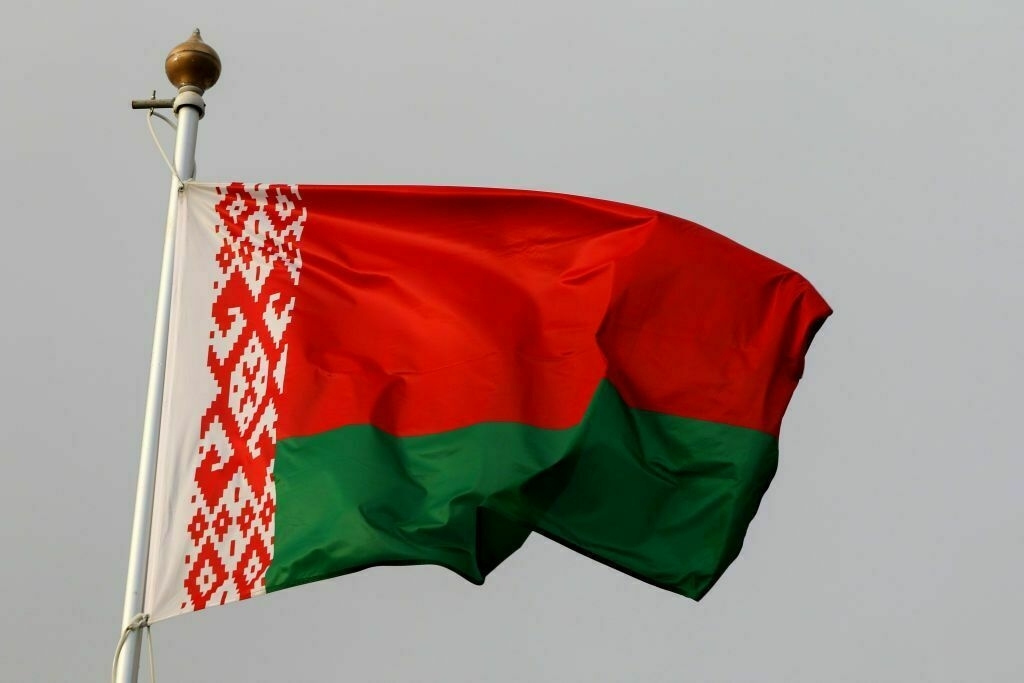
A Japanese man was sentenced in Minsk on March 17 to seven years in prison on changes stemming from “espionage activity,” Belarus’ Prosecutor General’s Office said.
Authorities convicted Nakanishi for allegedly taking over 9,000 photos of civilian and military infrastructure. The man was accused of taking photos of military facilities and railway infrastructure. Belarusian authorities also claimed Nakanishi traveled to the Ukrainian border.
Under the regime of Belarusian dictator Alexander Lukashenko, Minsk has imprisoned hundreds of political prisoners, convicting a number hundreds of people under the guise of anti-state activity. According to the Viasna human rights monitoring group, there are currently 1,213 political prisoners in Belarus.
Masatoshi Nakanishi has been in custody since July for allegedly spying for a foreign intelligence agency between 2018 and 2024, local authorities said. Nakanishi’s arrest was only publicly announced in September, despite his arrest several months prior.
The Japanese Embassy in Belarus was barred from attending the court proceedings which ended on March 17.
Nakanishi, who live in the bordering city of Gomel and taught at a local university, was convicted by the Minsk City Court in a closed-door trial that spanned over the course of two months.
“Like other political prisoners, he is being dehumanized by regime propaganda,” Belarusian opposition leader Sviatlana Tsikhanouskaya said in a post to X on March 17, calling for Nakanishi’s immediate release.
Japan’s Embassy in Belarus also told Japanese media outlet NHK that is was calling for immediate release.
Critical Ukraine coverage at risk as Trump slashes Radio Free Europe fundingThe U.S. decision to cut off funding for Radio Free Europe/Radio Liberty came as a surprise for the outlet’s newsroom, a source in the RFE/RL’s Ukrainian Service told the Kyiv Independent. “We understood that the U.S. president, to put it mildly, does not like us,The Kyiv IndependentKateryna Denisova
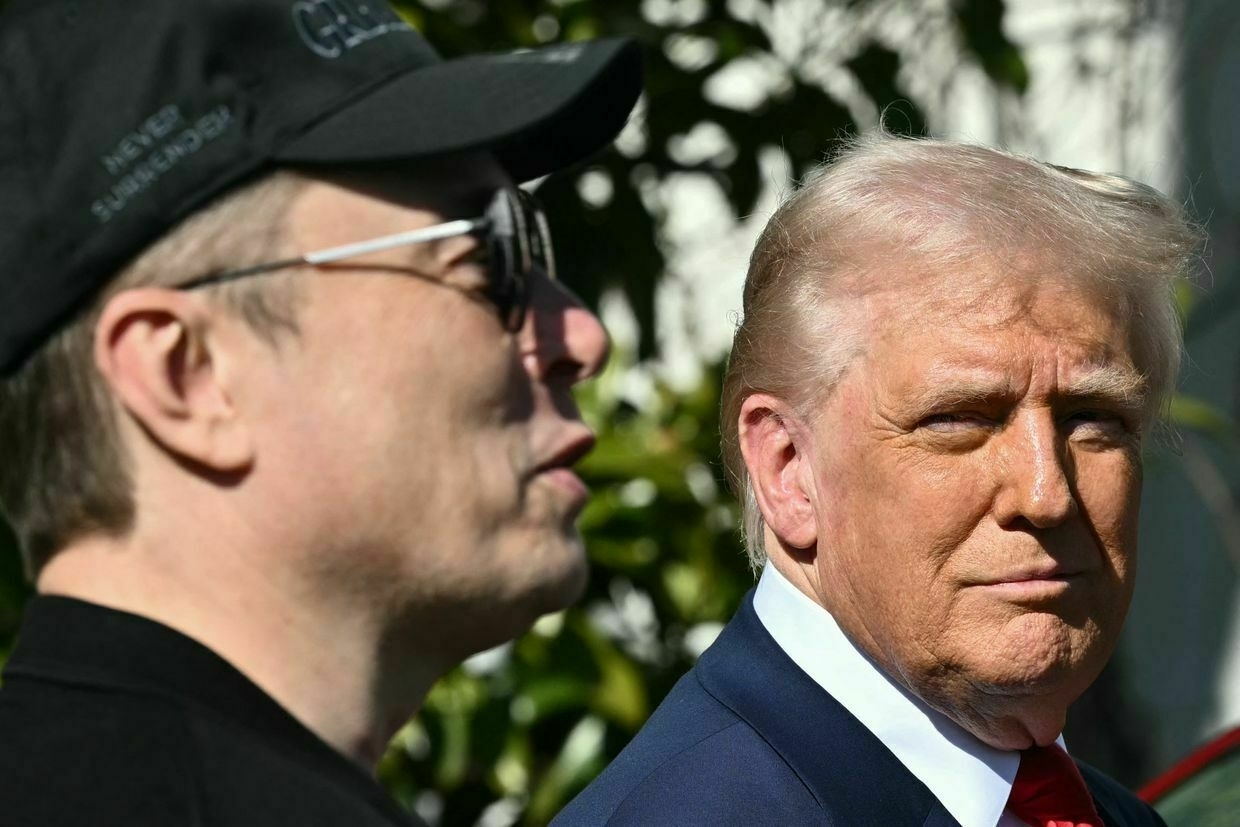
-
Critical Ukraine coverage at risk as Trump slashes Radio Free Europe funding
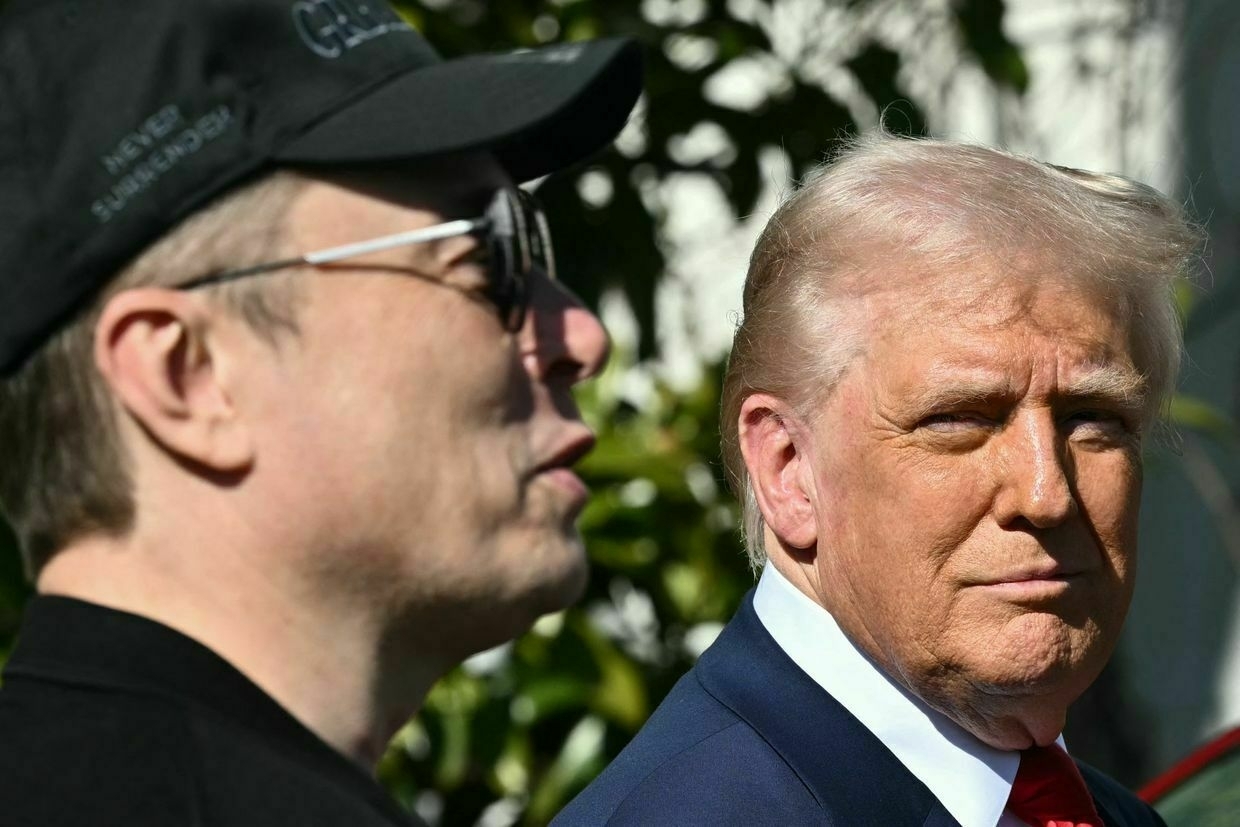
The U.S. decision to cut off funding for Radio Free Europe/Radio Liberty came as a surprise for the outlet’s newsroom, a source in the RFE/RL’s Ukrainian Service told the Kyiv Independent.
“We understood that the U.S. president, to put it mildly, does not like us,” the source said on March 17. “But there is bipartisan support, there is approved funding, and we had an (approved) budget at least until the end of this fiscal year. No one expected that they would cut off funding in the middle of the year like that.”
U.S. President Donald Trump eliminated seven federal agencies on March 14, including the U.S. Agency for Global Media (USAGM), which oversees RFE/RL and Voice of America (VoA). The decision terminated the Congress-authorized grant that funded RFE/RL, while the Voice of America’s employees were put on administrative leave.
The move seeks to effectively end over seven decades of work of the U.S.-sponsored media outlets, launched to promote democracy and counter propaganda in authoritarian countries.
The decision was welcomed by Russian propagandists, who took to Russian state TV to praise it.
In Ukraine, the decision comes as a yet another blow to the country’s media, which has already suffered greatly from the freeze of the USAID programs in January. The freeze left many Ukrainian independent media outlets, including local front-line newsrooms and investigative projects, without funding. Now, Ukraine’s media landscape may risk to lose the robust local RFE/RL bureau.
For years, RFE/RL has been one of the most reliable sources for millions of Ukrainians. Around 14% of Ukrainians regularly tuned into the RFE/RL’s coverage, according to a Gallup World Poll, conducted in July 2023. The same poll showed that “95% of the audience” trusted the Radio’s coverage.
As of late 2024, the company employed a team of more than 100 people in Ukraine, said Maryana Drach, RFE/RL’s Ukrainian Service director.
For the Kyiv-based bureau, the halt would bring an end to several prominent projects, including investigations of corruption and Russian aggression, front-line coverage, and coverage of Ukraine’s occupied territories.
The team in Kyiv continues work, reportedly hoping to restore or replace the lost funding.
“Everyone is in a waiting mode,” the source told the Kyiv Independent. “Today we heard at one of the meetings with the management that they keep fighting.”
‘A massive gift for America’s enemies’The RFE/RL’s Ukrainian Service began operation on Aug. 16, 1954, in Munich under the initial name Radio Liberation, becoming one of the view free media outlets reachable by the citizens of the Soviet Union.
During the Cold War, RFE/RL faced surveillance, provocations, and even terrorist attacks. In 1981, a bomb was planted at the headquarters of RFE/RL in Munich, injuring six people.In modern Russia, Radio Free Europe has witnessed a similar fate.
In 2017, Russia labeled Voice of America and Radio Free Europe “foreign agents.” Five years later, Moscow added RFE/RL to the list of “undesirable” organizations. The registries have been widely used to target and silence groups and individuals who are critical of the government, including independent journalists, activists, and NGOs.
RFE/RL President and CEO Stephen Capus said that the cancelation of the organization’s funding “would be a massive gift to America’s enemies.”
“The Iranian Ayatollahs, Chinese communist leaders, and autocrats in Moscow and Minsk would celebrate the demise of RFE/RL after 75 years. Handing our adversaries a win would make them stronger and America weaker,” he said.
US foreign aid transformed Ukraine. Its suspension threatens decades of workEditor’s Note: The Kyiv Independent isn’t a recipient of U.S. foreign aid, and its funding wasn’t affected by the aid freeze. With the stroke of a pen, U.S. President Donald Trump last week put a freeze on projects that have helped Ukraine become freer andThe Kyiv IndependentDaria Shulzhenko

What’s at risk in UkraineIn Ukraine, the funding freeze risks ending several projects that were a long-time staple of local journalism, including coverage of occupied territories and investigations unveiling top-level corruption.
Since its launch in 2014, the Schemes investigative journalism program, a unit of the Radio’s Kyiv bureau, has been investigating corruption and wrongdoing of Ukrainian elites. They have not shunned from investigating oligarchs and sitting presidents, having published investigations featuring President Volodymyr Zelensky and his predecessor, Petro Poroshenko.
After the start of Russia’s full-scale invasion, the Schemes project started investigating Russian war crimes and Russian officials, while also continuing to uncover corruption in Ukraine.
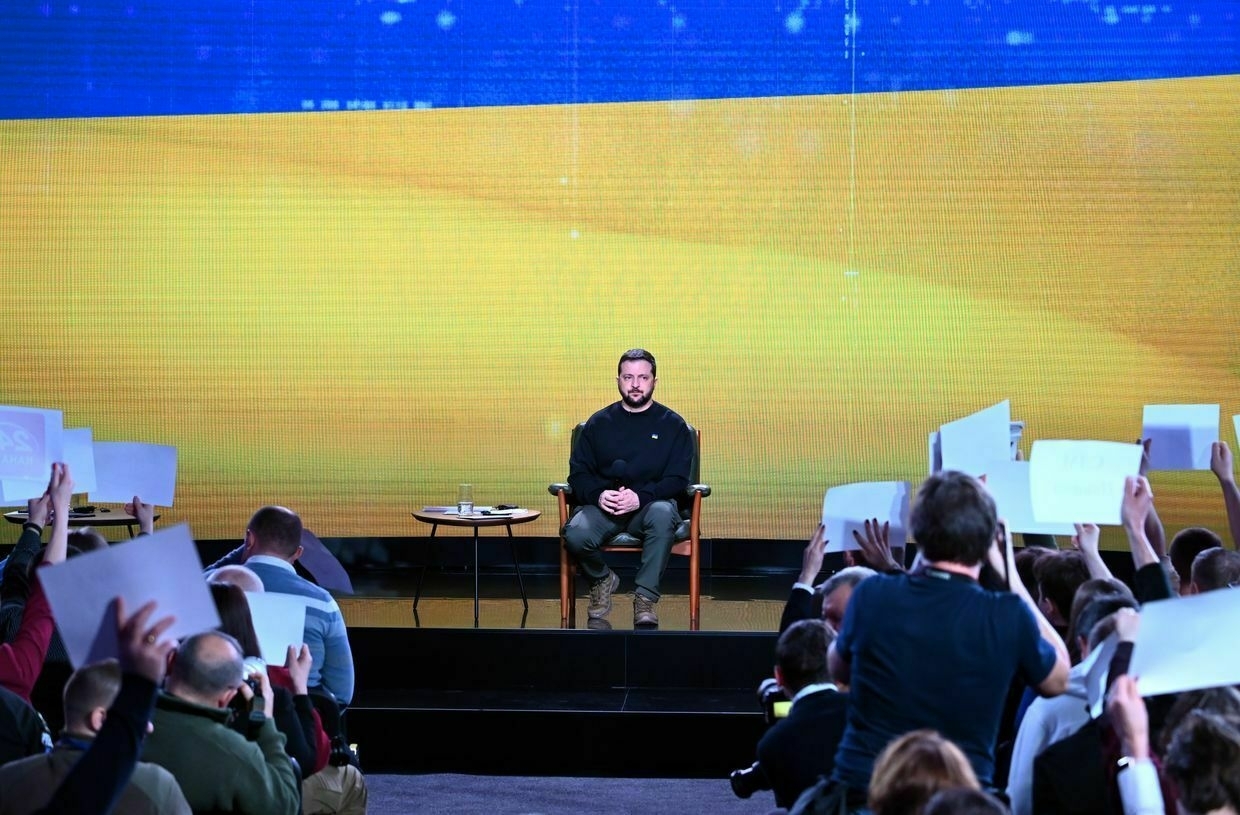
President Volodymyr Zelensky is listening to questions from journalists during his year-end press conference in Kyiv, Ukraine, on Dec. 19, 2023. (STR/NurPhoto via Getty Images) The other two trademark projects of RFE/RL in Ukraine — Crimea Realities and Donbas Realities — served as the key sources of information about the Russian-occupied territories.
Ukrainian journalist Artem Lysak worked as a reporter for Crimea Realities from 2016 to 2019. He used to visit the Russian-occupied peninsula undercover. He covered the persecution of Crimean Tatars and the illegal construction of the Crimean Bridge.
“The Crimea Realities project is as important now as it was from the beginning of (Russia’s) invasion (of Crimea). Since we know that there is practically no freedom of speech in Crimea, just like in Russia,” Lysak told the Kyiv Independent.
“It remains one of the media outlets that constantly monitors the situation and gives at least some kind of true picture for the people in Crimea. There are no other projects like Crimea Realities in Ukraine, unfortunately,” he said.
During his reporting trips, Lysak faced interrogations and surveillance by Russia’s Federal Security Service (FSB) in Crimea. When his lawyer suspected that a criminal case might be fabricated against the journalist, Lysak decided to leave the peninsula.
For their work, RFE/RL’s journalists have repeatedly faced persecution by the Kremlin.
Mykola Semena, a former observer of Crimea Realities, faced Russia’s trumped-up charges for his journalism in Crimea in January 2016. He was able to leave the peninsula in 2020.
Another Ukrainian RFE/RL journalist, Vladyslav Yesypenko, was illegally detained in Crimea by Russia in 2021 and remains behind bars to this day.
Writer and former journalist Stanislav Aseyev, who worked for RFE/RL, said that he was tortured in Russian-occupied Donetsk for being affiliated with Radio Liberty.
“I once was electrocuted only for writing for Radio Liberty: I was told that it was ‘a CIA structure and an enemy of Russia,’ and for that reason alone I was already guilty,” Aseyev wrote.
The writer was abducted by Russian proxies in 2017 and jailed in the infamous Izolyatsia prisoner camp in Donetsk. He was released in December 2019 in a prisoner exchange.
“Now, the ‘enemy of Russia’ is being destroyed by America itself, and my torture seems in vain,” Aseyev said.
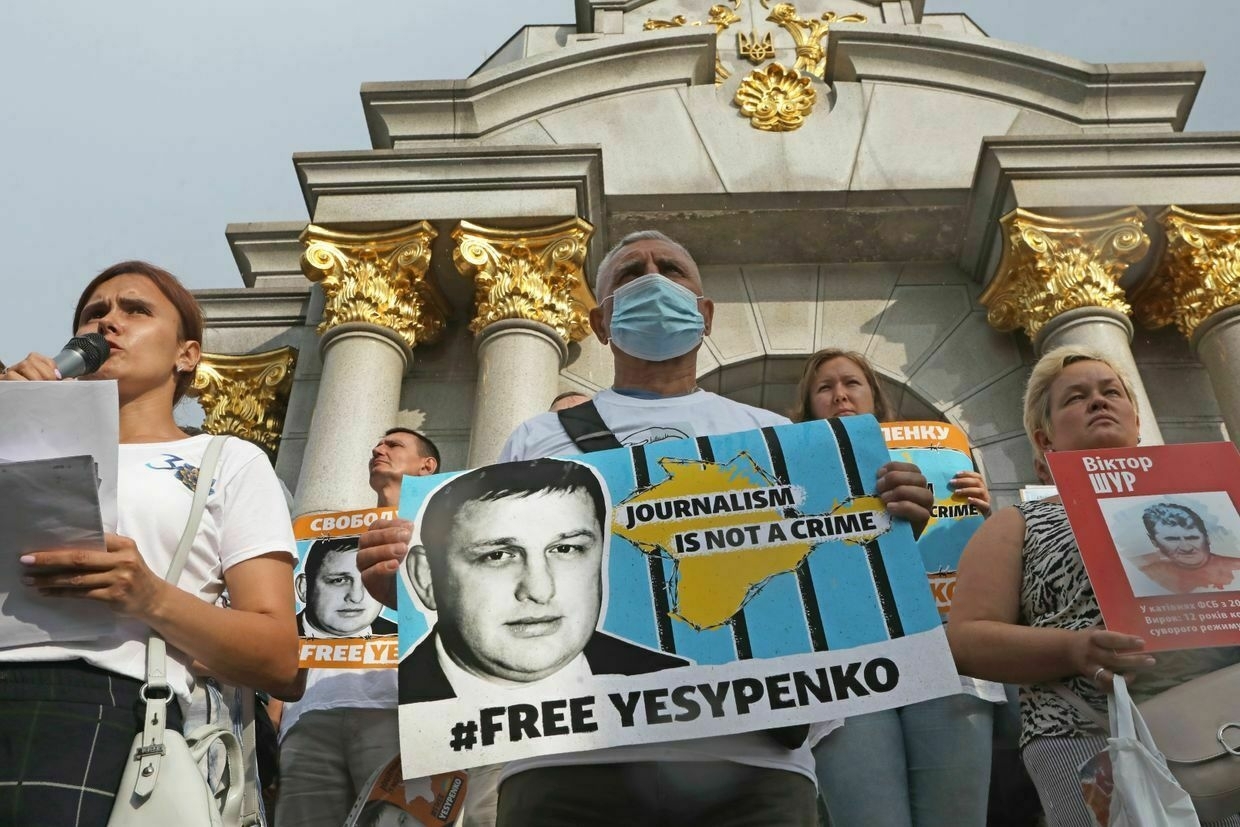
Activists stage the rally in support of Radio Free Europe/Radio Liberty’s freelance journalist Vladyslav Yesypenko in Kyiv, Ukraine, on July 6, 2021. (Yuliia Ovsiannikova / Ukrinform/Future Publishing via Getty Images) What’s next for RFE/RL?Days after the U.S. decision, Ukrainian journalists of RFE/RL continue their work, although the service’s future remains unclear.
The source in RFE/RL’s Ukrainian Service told the Kyiv Independent that there’s funding through the end of March.
“The management hopes to get support from (U.S.) Congress, other organizations. There is hope that we will use this time effectively and will be able to somehow return back. There is an expectation that there will be some dissatisfaction in Congress, or maybe we can somehow, so to speak, cancel President (Trump’s) decision,” the source said.
According to the source, support from the European Union is also considered as an alternative source of funding.
EU foreign policy chief Kaja Kallas said EU foreign ministers discussed the functioning of RFE/RL at a meeting in Brussels on March 17. The bloc cannot automatically fund Radio Free Europe, she said, adding that the EU will look into potential options.
Czech Foreign Minister Jan Lipavsky did not rule out that the European Union can buy Radio Free Europe from the U.S.
Lysak said, citing his colleagues, that the Ukrainian Service has in the meantime parted ways with its freelance journalists.
The RFE/RL source confirmed to the Kyiv Independent that contracts with all freelancers have been terminated, adding that the decision, however, was made about a week ago. This move was made to save money amid the U.S. budget uncertainty.
“If a week ago we were wondering where to get money to pay back the freelancers, now the question arises whether the service will work at all,” they said.
Who is to gain more from a ceasefire — Russia or Ukraine?U.S. President Donald Trump said on March 17 that he expects to hold a phone call with his Russian counterpart Vladimir Putin to discuss a U.S.-backed ceasefire proposal that Moscow has yet to agree to. Russia has declined to immediately accept the 30-day ceasefire proposal, with theThe Kyiv IndependentOleg Sukhov
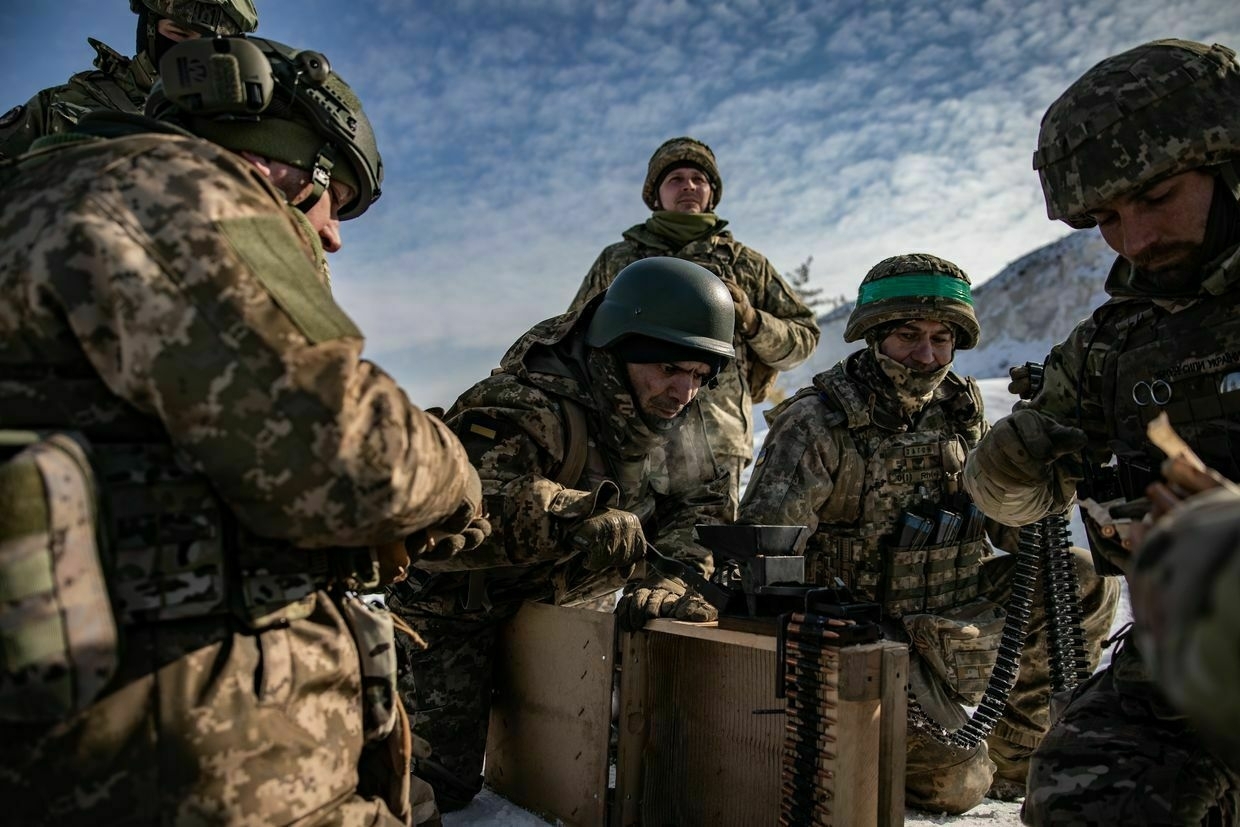
-
Putin should drop 'absurd demands' in peace talks with Trump, Polish Foreign Minister says
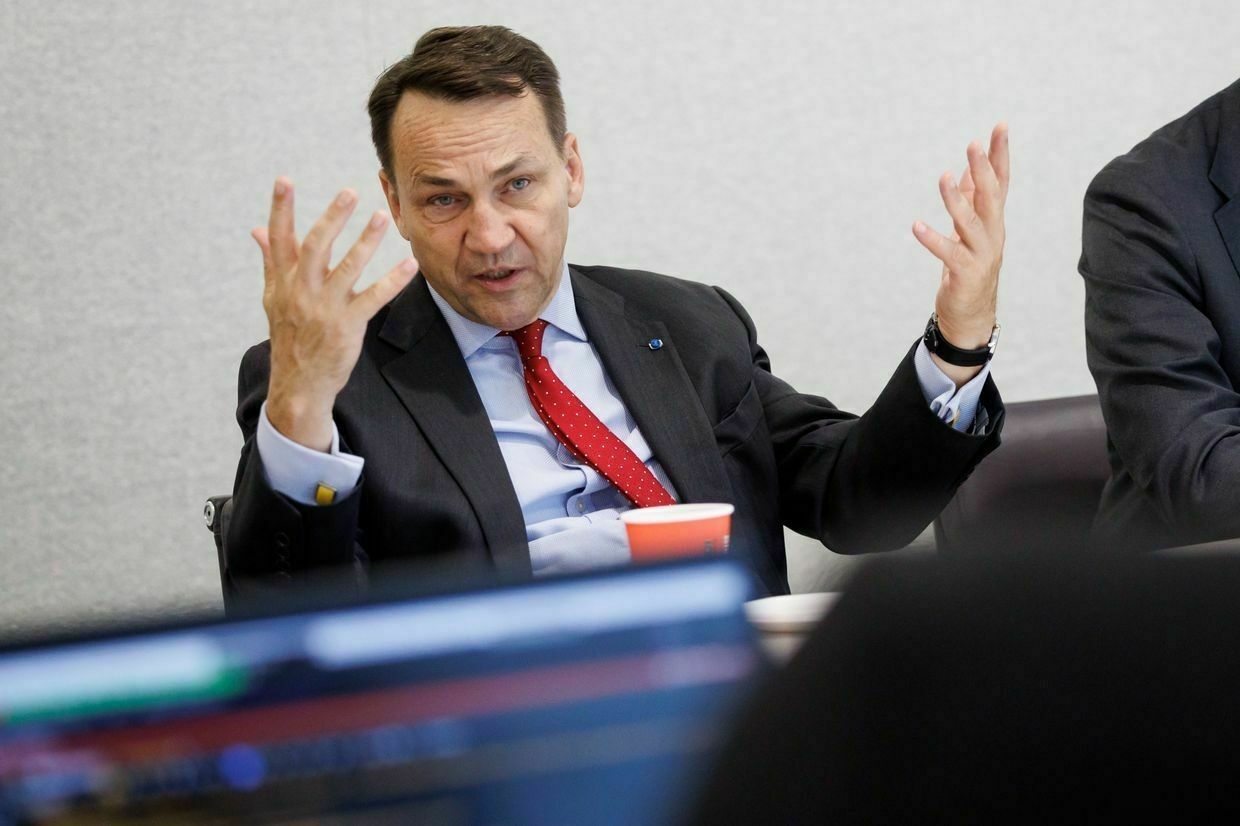
Polish Foreign Minister Radoslaw Sikorski said on March 17 that it was his hope that U.S. President Donald Trump will get Russian President Vladimir Putin to abandon “some absurd demands” toward establishing a peace deal in Ukraine.
Trump is set to hold a phone call with Putin on March 18 to discuss ending Russia’s war against Ukraine.
"(W)e will measure the success of Trump’s talks by the quality of the negotiated peace," Sikorski said at an EU foreign ministers summit in Brussels.
Ukraine agreed to a temporary 30-day ceasefire proposed by the U.S. on March 11 following talk in Jeddah, provided Russia also agrees to it. On March 13, Putin said Russia was also willing to accept the ceasefire but demanded guarantees that Ukraine would not mobilize troops, conduct training, or receive military assistance during the truce, making it potentially vulnerable to renewed Russian aggression.
Russia has repeatedly demanded Ukraine hand over the entirety of Luhansk, Donetsk, Zaporizhzhia, and Kherson Oblasts despite not fully controlling them.
Russia has also opposed the deployment of peacekeepers to Ukraine in a potential peace deal and insisted Ukraine be demilitarized, neutral, and barred from joining NATO.
“It is clear who wants peace and who wants war. Russia will want to take over all of Ukraine by other means, and preferably militarily neutralize half of Europe while at it. Russia won’t succeed in that… (but that) doesn’t mean Putin won’t try,” Sikorski said.
"Putin could finish this war in 5 minutes by just withdrawing," he added.
The U.K. news outlet the Independent reported on March 16, citing senior Ukrainian officials, that Ukraine is ready to negotiate a peace deal with Russia, but remains firm on several areas, including the return of children and civilians, no further ceding of territory, as well as establishing international security guarantees.
‘Talk about an invasion is everywhere’ — How Lithuania is preparing for war with RussiaThroughout Russia’s full-scale invasion of Ukraine, repeated and escalating warnings of the potential for a wider war have only raised fears in the Baltic states that they could be next in the crosshairs of the Kremlin. Talk about a potential Russian invasion is “very common at parties, gatherings,…The Kyiv IndependentYuliia Taradiuk
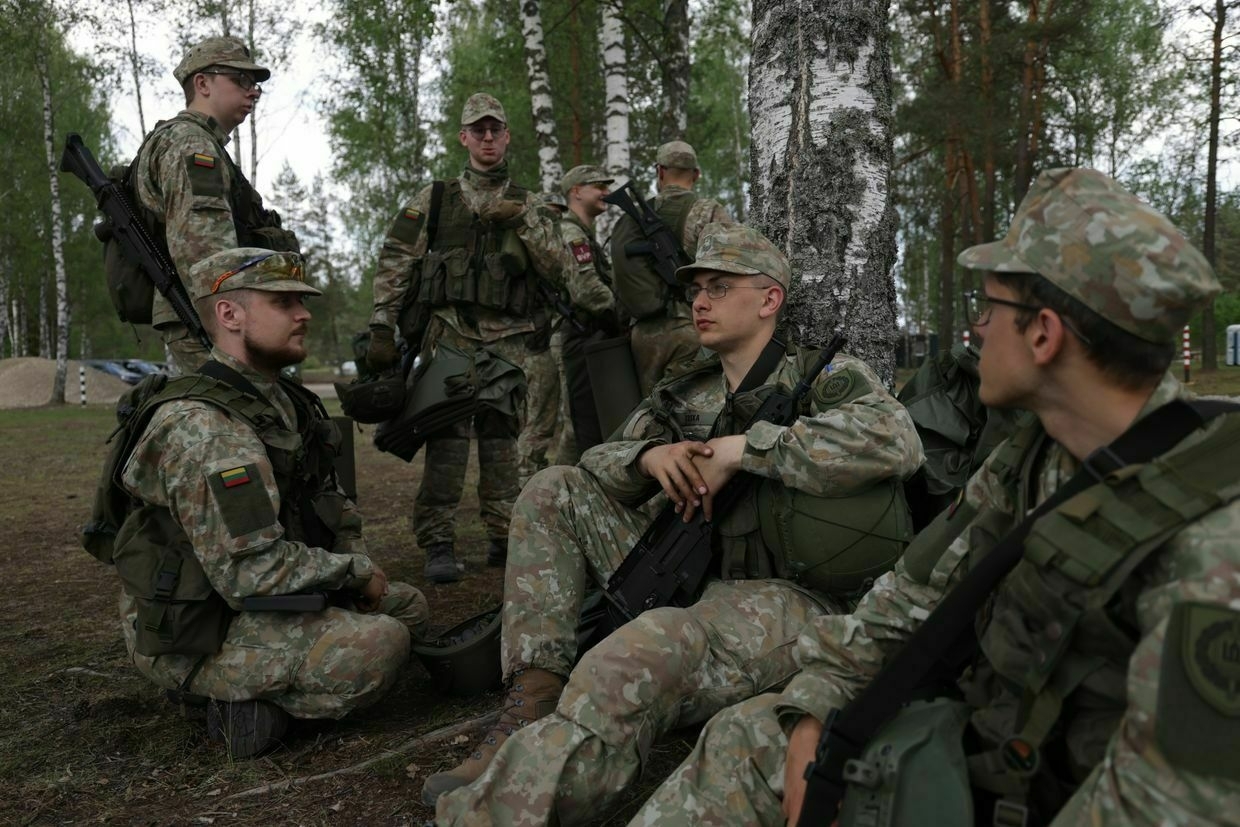
-
'We’ve never been closer to a peace deal,' White House says ahead of Trump-Putin call
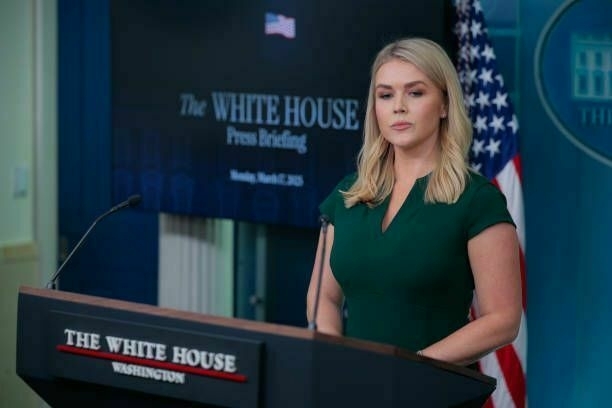
White House Press Secretary Karoline Leavitt said on March 17 that the Trump administration believes they have “never been closer” to closing a ceasefire deal in Ukraine, ahead of a call scheduled between U.S. President Donald Trump and Russian President Vladimir Putin for March 18.
“I won’t get ahead of those negotiations (between Trump and Putin) but I can say we are on the 10th yard line of peace,” Leavitt said at a press briefing, using an American football analogy to suggest a resolution is within reach. “We’ve never been closer to a peace deal than we are in this moment and the president is determined to get one done."
Trump said on March 17 that he plans to have a phone call with Russian President Vladimir Putin on Tuesday to discuss ending the war in Ukraine.
The planned call follows U.S.-led negotiations in Saudi Arabia, where Washington proposed a 30-day ceasefire between Russia and Ukraine. Kyiv accepted the deal during talks in Jeddah on March 11, prompting the U.S. to resume military and intelligence support for Ukraine.
On March 13, Putin said Russia was also willing to accept the ceasefire but demanded guarantees that Ukraine would not mobilize troops, conduct training, or receive military assistance during the truce, making it potentially vulnerable to renewed Russian aggression.
“I think we have a lot of it already discussed very much by both sides, Ukraine and Russia. We’re already talking about that, dividing up certain assets,” Trump said on Air Force One.
When asked by reporters whether dividing up territory and power plants between Ukraine and Russia has been part of the discussions between Kyiv and Washington, Leavitt confirmed “that has been part of the discussion,” but would not preemptively say whether Trump will discuss the issue with Putin on March 18.
The White House has insisted that both Russia and Ukraine will have to make compromises in order to end the war, calling Ukraine’s goal of restoring its pre-2014 borders “unrealistic."
The U.K. news outlet the Independent reported on March 16, citing senior Ukrainian officials, that Ukraine is ready to negotiate a peace deal with Russia, but remains firm on several areas, including the return of children and civilians, no further ceding of territory, as well as establishing international security guarantees.
No more lost territory, return of deported children — Kyiv names red lines for peace deal, Independent reports“It is not reasonable to demand that, for example, Zaporizhzhia or Kherson be fully handed over — that sounds like a f*** off to us,” a high-level Ukrainian official said.The Kyiv IndependentAbbey Fenbert
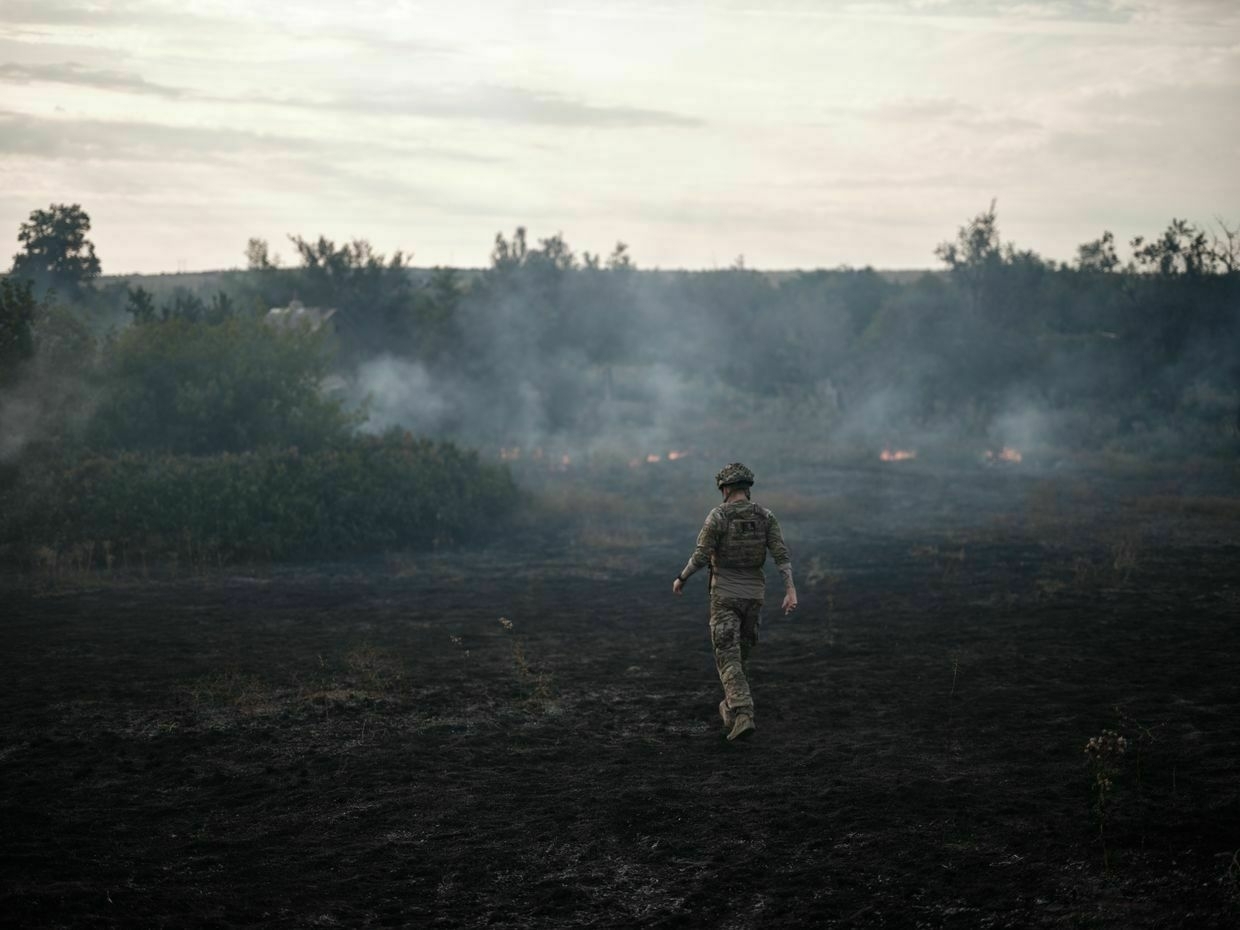
-
Ukraine war latest: Ukrainian military refutes claim that Russia captured Zaporizhzhia Oblast village
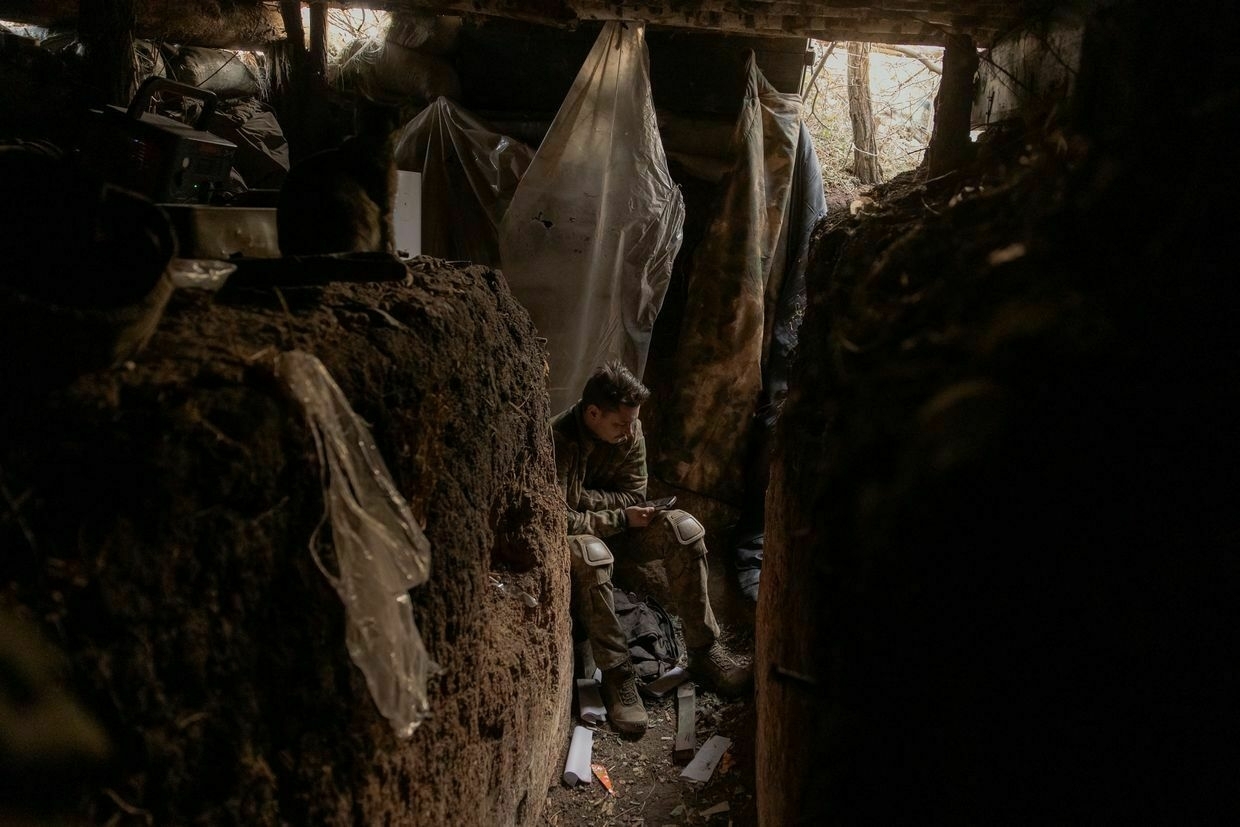
Key developments on March 17:
- Russia claims capture of Stepove in Zaporizhzhia Oblast, Ukraine denies
- Ukrainian drones attack fuel facility in Russia’s Astrakhan Oblast, governor claims
- Ukrainian long-range drone successfully completes 3,000-kilometer test, Zelensky says
- Territorial integrity, military size, alliances — FM Sybiha sets 3 ‘fundamentals’ for potential peace talks
- Zelensky signs law permitting Ukrainian troops to operate abroad during martial law
- Seoul, Kyiv discuss transfer of North Korean POWs to South Korea
The Russian Defense Ministry claimed Russian forces captured the Ukrainian village of Stepove in Zaporizhzhia Oblast on March 17.
Ukraine’s Southern Defense Forces spokesperson Vladyslav Voloshyn denied the statement.
Stepove, with a pre-war population of 118 people, is located 5 kilometers (3 miles) from the villages of Pyatykhatky and Mali Shcherbaky in Zaporizhzhia Oblast. All three settlements were under Russian occupation in 2022 and 2023.
The Russian Defense Ministry claimed that its military had taken control of Stepove. However, Voloshyn told the Kyiv Independent that Ukrainian forces did not lose ground in the Zaporizhzhia sector of the front line.
“This is a method of information warfare — the enemy claims that it is there before it has entered. I do not confirm the information that Russia entered the settlements of Stepove, Mali Shcherbaky, or Shcherbaky and took them under control,” Voloshyn said.
"Fierce fighting continues in this area. The enemy is trying to change the configuration of the combat line in its favor. In total, six combat engagements were registered in the Orikhiv sector over the last day. The day before yesterday, there were 19," Voloshyn added.
According to Voloshyn, since March, Russian forces have intensified their assaults in Zaporizhzhia Oblast. Since the beginning of spring, there have been over 130 clashes in the Orikhiv sector alone.
The Ukrainian military warned in fall 2024 that Russian forces were ammassing in Zaporizhzhia Oblastin preparation for a southern offensive. Heavy fortifications were constructed around the regional capital of Zaporizhzhia ahead of the possible invasion.
The area near Stepove was the main axis of Ukraine's southern counteroffensive in 2023, which led to the liberation of the settlement of Robotyne but achieved no major breakthrough.
‘Talk about an invasion is everywhere’ — How Lithuania is preparing for war with RussiaThroughout Russia’s full-scale invasion of Ukraine, repeated and escalating warnings of the potential for a wider war have only raised fears in the Baltic states that they could be next in the crosshairs of the Kremlin. Talk about a potential Russian invasion is “very common at parties, gatherings,…The Kyiv IndependentYuliia Taradiuk
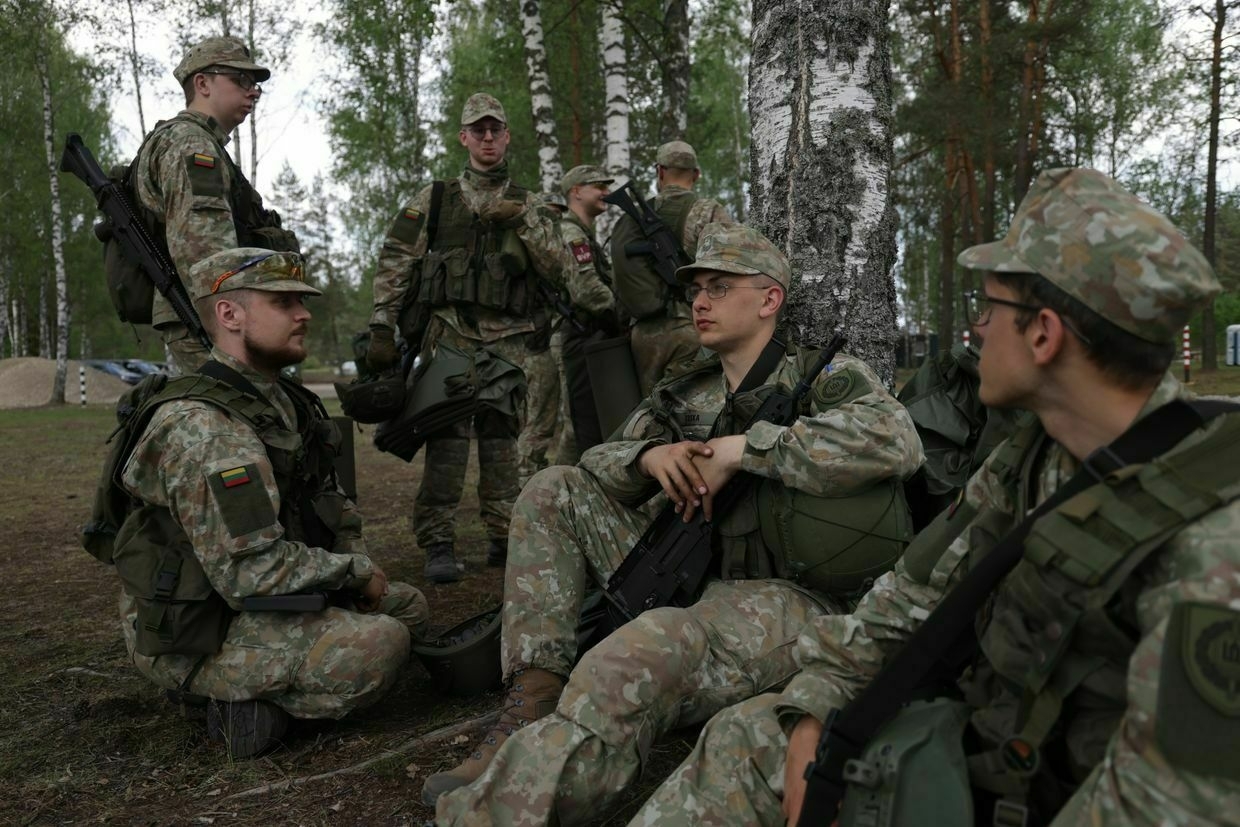
Ukrainian drones attack fuel facility in Russia's Astrakhan Oblast, governor claimsUkrainian drones attacked a fuel and energy facility in Russia's Astrakhan Oblast on March 17, causing a fire, regional governor Igor Babushkin claimed.
"Overnight, the Ukrainian Armed Forces again attempted a massive drone attack on facilities located in the region, including a fuel and energy complex," Babushkin claimed.
Russia's Defense Ministry said its forces had destroyed 13 drones over the oblast. Babushkin reported that fallen debris caused a fire at the facility, and one person was hospitalized.
The Kyiv Independent could not independently verify these claims.
Astrakhan Oblast is located in southwestern Russia and borders Kazakhstan. The city of Astrakhan is almost 800 kilometers (500 miles) from the front line in Ukraine.
Ukraine has increasingly targeted Russia's energy and military infrastructure to disrupt Moscow's war effort. Overnight on March 14, Ukrainian drones struck the Tuapse oil refinery in Russia's Krasnodar Krai, igniting a gasoline storage tank.
Kyiv has focused on hitting Russian refineries, oil depots, and defense industry sites, aiming to limit Moscow's ability to sustain its full-scale invasion.
Ukrainian long-range drone successfully completes 3,000-kilometer test, Zelensky saysPresident Volodymyr Zelensky announced on March 17 in his evening address that a Ukrainian long-range drone has successfully completed testing, demonstrating its ability to fly 3,000 kilometers (1,864 miles).
"There is good news about long-range drones. Our drone has passed a 3,000-kilometer test," Zelensky said following a meeting of the Headquarters of the Supreme Commander-in-Chief, the top command and control body for Ukraine’s defense and security forces.
Kyiv uses long-range drones to strike deep into Russian territory, targeting military infrastructure such as airfields, oil refineries, and logistics hubs.
During the meeting, participants also discussed a new long-range missile developed by Ukraine, the Long Neptune.
"We can say that we are satisfied with the results of the strikes. But we need to produce more missiles, more drones, and we will be talking about this with our partners this week," Zelensky said.
Navy spokesperson Dmytro Pletenchuk earlier said that the Ukrainian Navy is the only structure of the Ukrainian Armed Forces that uses the Long Neptun missiles.
Ukraine has also developed long-range missile-drone hybrids, such as the Palianytsia and Peklo models, featuring turbojet engines as alternatives to cruise missiles. President Volodymyr Zelensky has set a target of producing at least 30,000 long-range drones in 2025.
China is more likely than the EU to replace Starlink on the Ukrainian battlefieldFears of a Starlink shut-off at the front line have racked Ukraine. European satellite internet firms took the opportunity to step forward as replacements — but even collectively, they are unlikely to fill the void in coverage that Starlink’s shut off would leave. Today, Starlink satellite internet…The Kyiv IndependentKollen Post
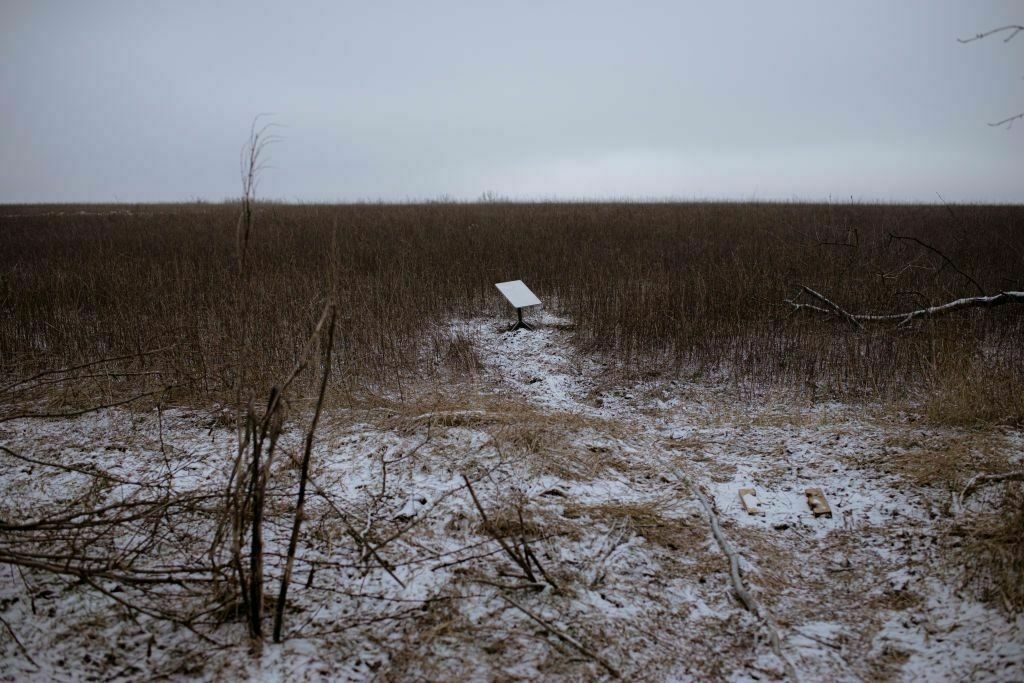
Territorial integrity, military size, alliances — FM Sybiha sets 3 'fundamentals' for potential peace talksForeign Minister Andrii Sybiha outlined three key conditions for future negotiations to end Russia's war against Ukraine in an interview with RBC-Ukraine published on March 17.
"I don't like this definition (red lines). There are fundamental things that are non-negotiable, that cannot be touched upon," Sybiha said when asked what Ukraine's red lines are in potential talks.
Sybiha stressed that Ukraine's territorial integrity and sovereignty are non-negotiable, reaffirming that Kyiv will never recognize Russian-occupied territories as part of Russia. President Volodymyr Zelenskyvoiced this stance back on March 12.
Despite this, the Trump administration has suggested that Kyiv and Moscow must compromise on a peace deal, calling Ukraine's goal of restoring its pre-2014 borders "unrealistic."
Russian forces currently occupy roughly 20% of Ukraine, where reports of systematic repression, torture, and forced deportations continue to emerge.
According to Sybiha, the second key condition is Ukraine's right to choose its alliances. He emphasized that no country should have a veto over Ukraine's NATO and EU aspirations.
Kyiv officially applied to join NATO in September 2022, and in 2024, the alliance declared Ukraine's path to membership "irreversible," though no formal invitation has been extended.
Sybiha also underscored that Ukraine's ability to defend itself must remain unrestricted, meaning there can be no restrictions on the Ukrainian Armed Forces.
"Russia must be held accountable. These are all elements of a lasting peace," he said.
On March 13, President Vladimir Putin said Russia was willing to accept a U.S.-proposed 30-day ceasefire but demanded guarantees that Kyiv would halt mobilization, military training, and foreign aid deliveries — conditions that could leave Ukraine vulnerable to renewed aggression.
U.S. President Donald Trump is set to speak with Putin on March 18 to discuss ending the war in Ukraine. While Trump seeks to secure a deal, European allies and Ukraine warn that a rushed agreement without security guarantees may fail to ensure lasting peace.
Who is to gain more from a ceasefire — Russia or Ukraine?U.S. President Donald Trump said on March 17 that he expects to hold a phone call with his Russian counterpart Vladimir Putin to discuss a U.S.-backed ceasefire proposal that Moscow has yet to agree to. Russia has declined to immediately accept the 30-day ceasefire proposal, with theThe Kyiv IndependentOleg Sukhov
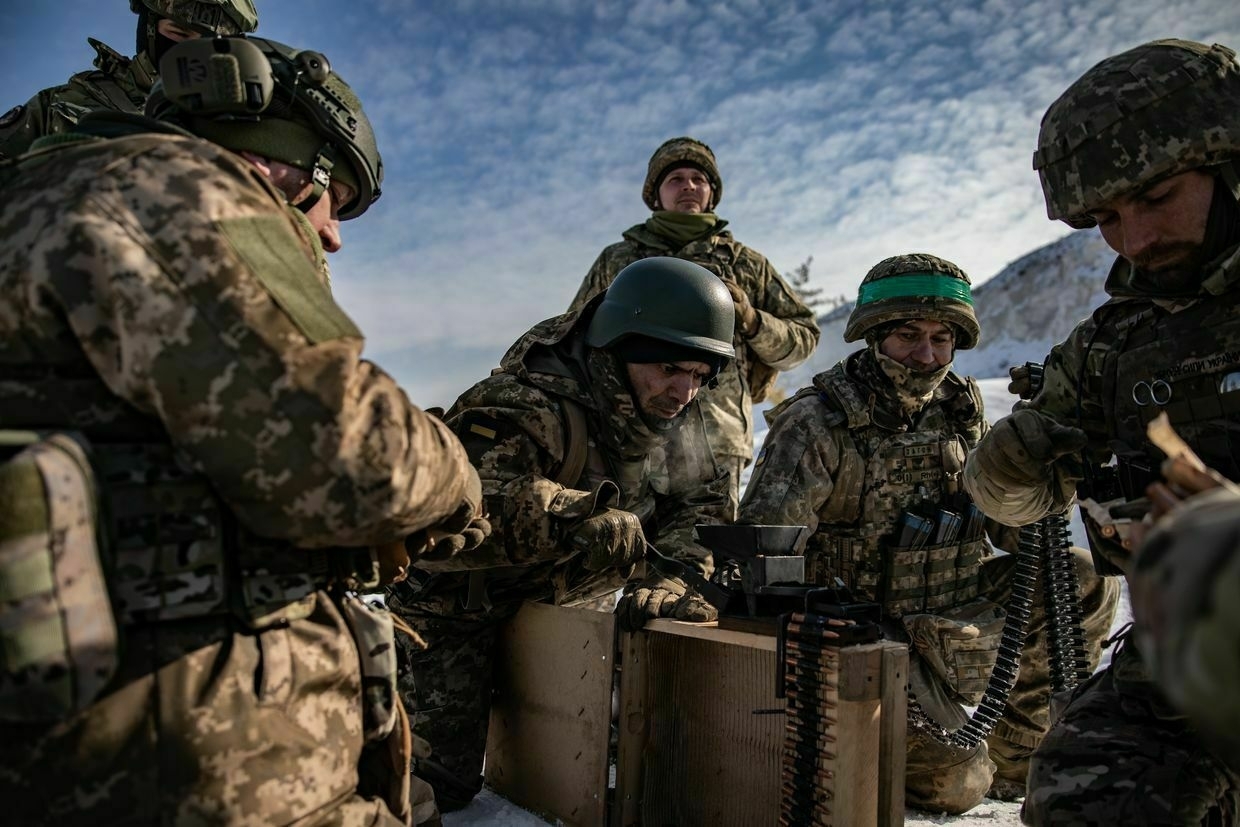
Zelensky signs law permitting Ukrainian troops to operate abroad during martial lawPresident Volodymyr Zelensky has signed a law allowing Ukraine's Armed Forces to be sent abroad during martial law, according to an official decree published on March 17.
The law aims to enhance defense cooperation with partner nations, particularly by enabling Ukrainian forces to participate in training and receive military equipment, lawmaker Oleksii Honcharenkoexplained.
"This will allow us to attract international support to strengthen Ukraine's defense faster and more effectively," Honcharenko posted on Telegram.
The legislation permits Ukrainian military units to be deployed to other countries for national security purposes, including repelling armed aggression, protecting sovereignty and territorial integrity, and exercising the right to self-defense under international law.
The law does not concern the deployment of Ukrainian troops for combat operations on Russian territory.
The decision to send military personnel abroad will be made by the president but requires approval from the Verkhovna Rada, the country's parliament. Deployments will be subject to a formal request detailing the mission's objectives, troop numbers, weaponry, and the conditions of their stay abroad.
Zelensky vetoed the bill in January and returned it to parliament with amendments clarifying the decision-making process and ensuring compliance with international law. Lawmakers approved the revised version in late February.
From drone simulators to civics: Ukraine reforms school curriculum to protect next generation from Russian threatIn a small town in Kyiv Oblast, 10th grader Alina Marynenko just beat her entire class to be the most accurate shooter on an AK-47 simulator. “Fourteen out of fifteen! I set a record! We beat the boys!” Marynenko yells out to her class. Marynenko and her classmates fired theThe Kyiv IndependentKateryna Hodunova
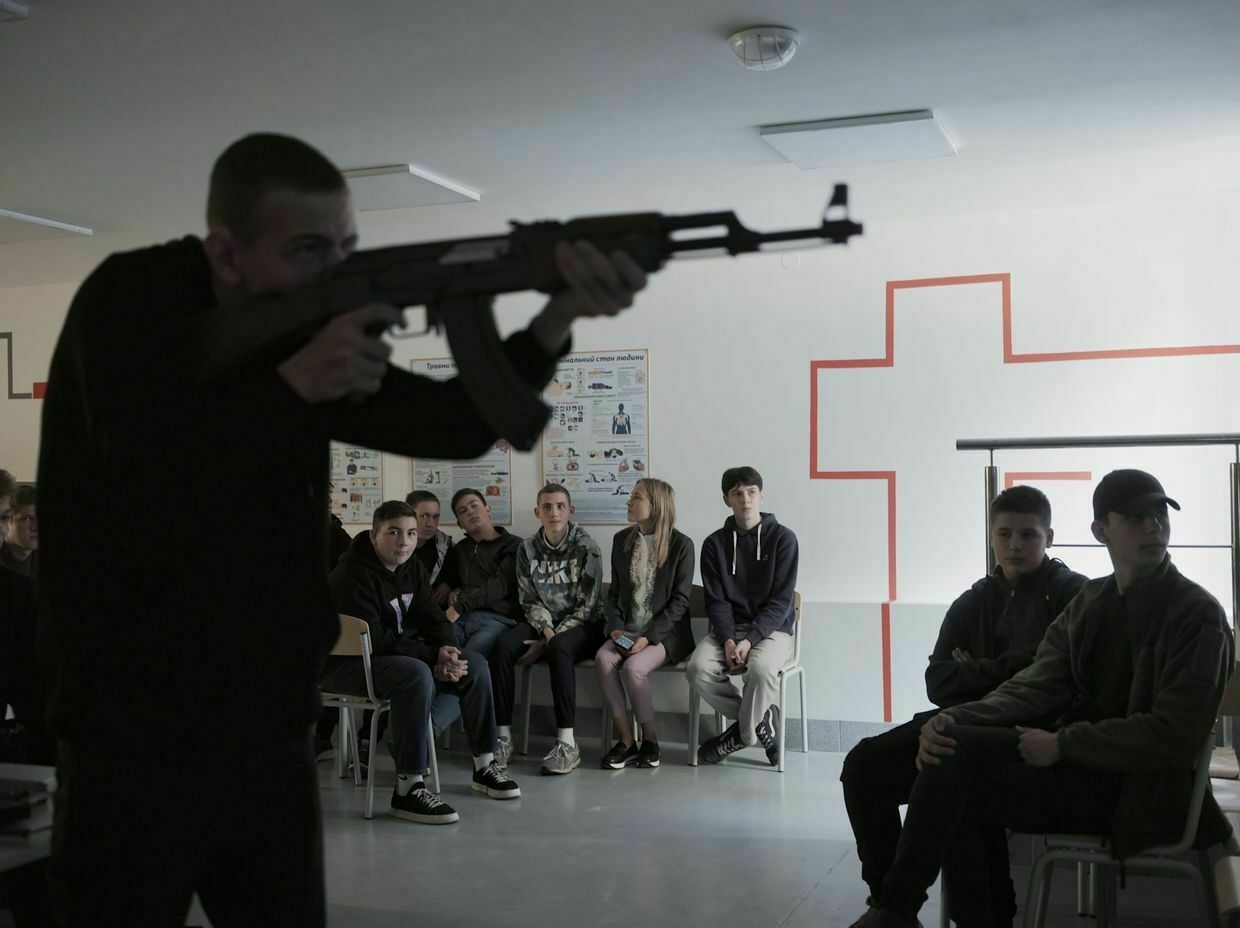
Seoul, Kyiv discuss transfer of North Korean POWs to South KoreaUkraine is negotiating with South Korea to hand over two North Korean soldiers taken prisoner by Kyiv, South Korea's Yonhap news agency reported on March 17.
South Korean Foreign Minister Cho Tae-yul and his Ukrainian counterpart Andrii Sybiha discussed the potential transfer of the North Korean prisoners of war (POWs) in a phone call.
Cho noted that under South Korea's Constitution, North Koreans are considered South Korean citizens, but the prisoners must express a desire to relocate.
Up to 12,000 North Korean troops were deployed to Russia's Kursk Oblast last fall to counter Ukraine's cross-border incursion launched in August 2024.
Ukrainian troops captured two North Korean soldiers as POWs on Jan. 11.
President Volodymyr Zelensky previously reported that North Korean forces fighting for Russia had suffered 4,000 casualties, with two-thirds of the losses being soldiers killed.
Ukraine's military intelligence chief, Kyrylo Budanov, attributed the high losses to North Korea's lack of combat experience and its use of human wave attacks with limited equipment.
Note from the author:
Ukraine War Latest is put together by the Kyiv Independent news desk team, who keep you informed 24 hours a day, seven days a week. If you value our work and want to ensure we have the resources to continue, join the Kyiv Independent community.
-
New Canadian PM invites Zelensky to attend G7 summit in June
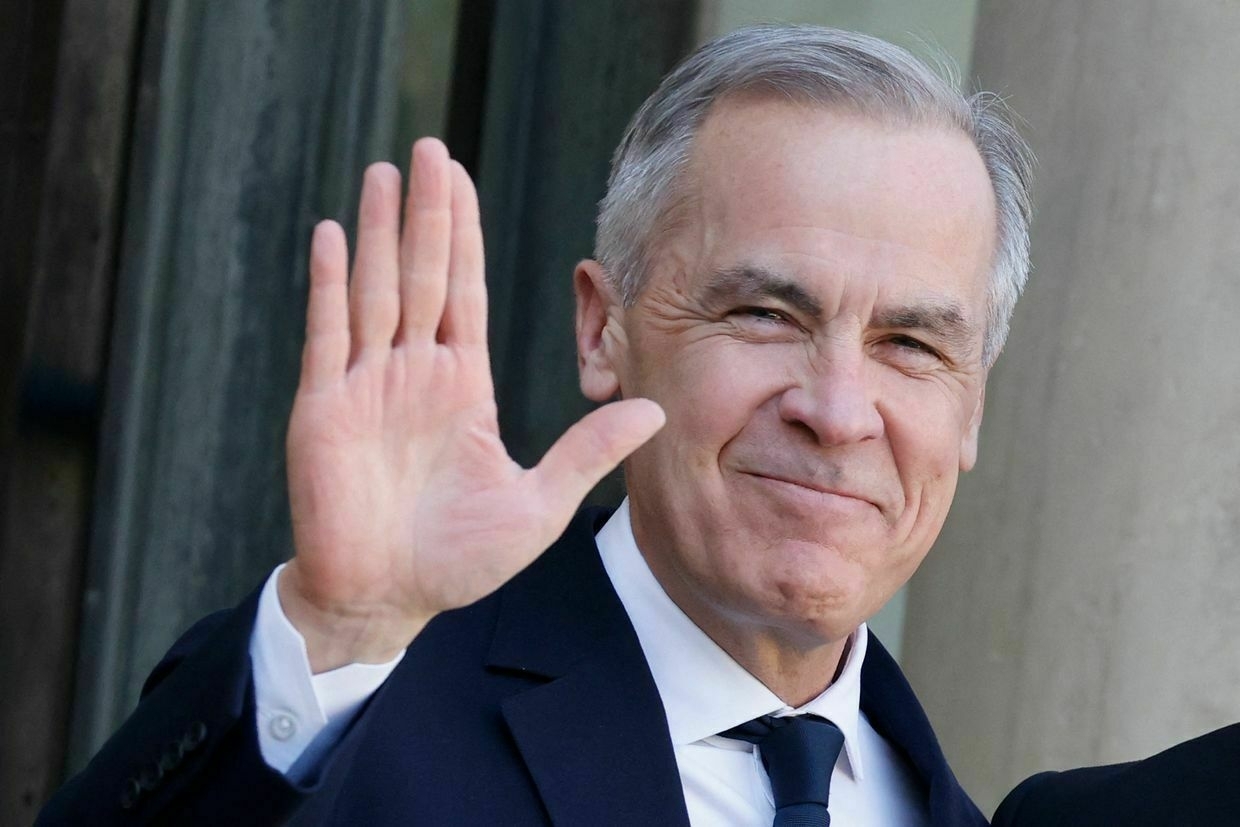
Newly elected Canadian Prime Minister Mark Carney has invited President Volodymyr Zelensky to attend the Group of Seven (G7) summit in June, Le Journal de Quebec reported on March 17, citing a Canadian Foreign Ministry spokesperson.
Canada, which holds the G7 presidency this year, will host the summit on June 15-17 in Kananaskis County, located in the western province of Alberta.
Carney had a phone call with Zelensky on March 16 and invited him to the summit, according to the media outlet.
Carney was sworn in as Canada’s prime minister on March 14, replacing former Prime Minister Justin Trudeau as head of the governing Liberal Party. Trudeau announced his resignation in January.
Under Trudeau’s leadership, Canada was a strong ally of Ukraine, providing 19.5 billion Canadian dollars ($13.5 billion) in assistance, including 4.5 billion Canadian dollars ($3.1 billion) in military aid.
Who is to gain more from a ceasefire — Russia or Ukraine?U.S. President Donald Trump said on March 17 that he expects to hold a phone call with his Russian counterpart Vladimir Putin to discuss a U.S.-backed ceasefire proposal that Moscow has yet to agree to. Russia has declined to immediately accept the 30-day ceasefire proposal, with theThe Kyiv IndependentOleg Sukhov
